プロジェクト ディレクトリ
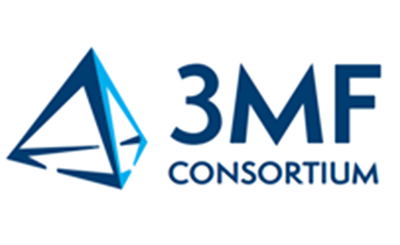
3MF
Started Date: 2018
3MF is an industry consortium working to define a 3D printing format that will allow design applications to send full-fidelity 3D models to a mix of other applications, platforms, services and printers.
View Project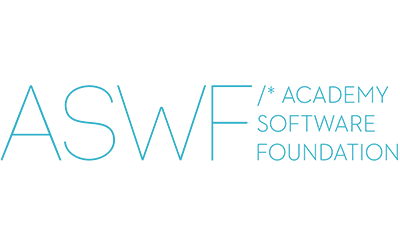
Academy Software Foundation
Started Date: 2018
The Academy Software Foundation (ASWF)’s goal is to increase the quality and quantity of contributions to the content creation industry’s open source software base; to provide a neutral forum to coordinate cross-project efforts; to provide a common build and test infrastructure; and to provide individuals and organizations a clear path to participation in advancing our open source ecosystem.
View ProjectAccord Project
Started Date: 2019
The Accord Project is an open ecosystem enabling anyone to build smart agreements and documents on a technology neutral platform.
View Project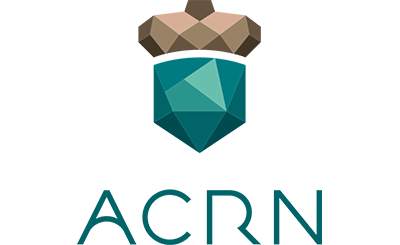
ACRN
Embedded & IoT
Started Date: 2018
ACRN is an open source reference hypervisor built to meets the unique needs of embedded IoT development.
Today’s connected devices are increasingly expected to support a range of hardware resources, operating systems, and software tools/applications. Virtualization is key to meeting these broad needs; however, existing solutions don’t offer the right size and flexibility for IoT. ACRN aims to be the answer.
ACRN is comprised of two main components: the hypervisor and its device model, complete with rich I/O mediators. ACRN will have a Linux-based service OS and will run guest operating systems (another Linux instance, an RTOS, Android, or other operating systems) simultaneously, providing a powerful software platform to build complex computing systems.
View ProjectAcumos AI
Blockchain & Data
Started Date: 1970
Acumos AI aims to make artificial intelligence (AI) available to everyone by providing a common framework and platform for the free exchange of machine learning solutions. The Linux Foundation expects to launch the project in early 2018. With the Acumos platform, we’re working to create an industry standard for making AI applications and models reusable and easily accessible to any developer. AI tools today can be difficult to use and often are designed for data scientists. The Acumos platform will be user-centric, with an initial focus on creating apps and microservices.
View ProjectAkraino
Cloud, Embedded & IoT, Networking
Started Date: 1970
Akraino Edge Stack will create an open source software stack supporting high-availability cloud services optimized for edge computing systems and applications. To seed the new project, AT&T is contributing code designed for carrier-scale edge computing applications running in virtual machines and containers to support reliability and performance requirements. The Akraino Edge Stack community anticipates releasing open source project code in the second quarter of 2018.
View Project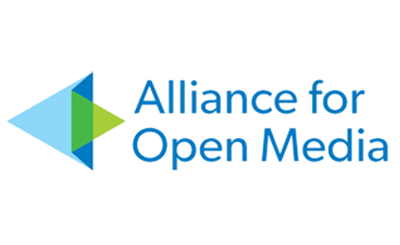
Alliance For Open Media
Started Date: 2018
AOMedia unites top tech leaders behind a collaborative effort to offer open, royalty-free and interoperable solutions for the next generation of media delivery.
View Project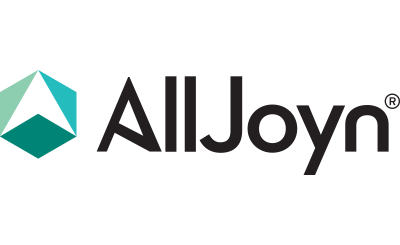
AllJoyn
Embedded & IoT
Started Date: 2013
The AllJoyn Open Source Project develops and supports the AllJoyn IOT framework. AllJoyn is a complete, open source, application framework for connected products, devices and services. Millions of products use AllJoyn today in a vibrant community that continues strongly for the future of broad interoperability in IOT.
The current AllJoyn project with the Linux Foundation started in the AllSeen Alliance in 2013. This project is now sponsored as an independent Linux Foundation project by the Open Connectivity Foundation (OCF), who also are sponsoring the AllJoyn certified program which continues to grow in the number of certified AllJoyn products. As a Linux Foundation collaborative project, membership is not required to use AllJoyn or to contribute to the development of AllJoyn.
View ProjectAngel-ML
Started Date: 2019
A Flexible and Powerful Parameter Server for large-scale machine learning.
View Project
Appium
Started Date: 1970
Appium is an open-source, Node.js server used for automating native, mobile web, and hybrid applications on iOS, Android and the Universal Windows Platform.
View Project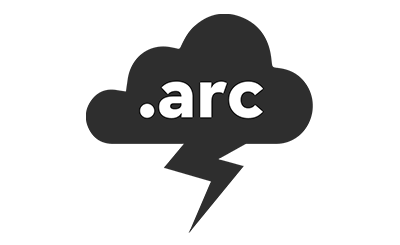
Architect
Started Date: 2016
Architect offers a simplistic plaintext manifest and npm script based workflows for creating, deploying, working offline and more with cloud functions.
View Project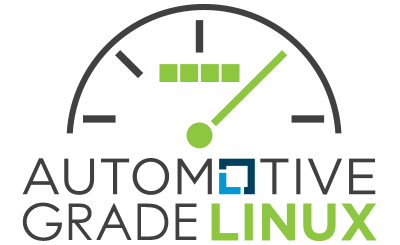
Automotive Grade Linux
Embedded & IoT
Started Date: 2012
Automotive Grade Linux (AGL) is an open source project that aims to accelerate the development and adoption of a fully open software stack for the connected car. Leveraging the power and strength of Linux at its core, AGL is uniting automakers and technology companies to develop a common platform that offers OEMs complete control of the user experience so the industry can rapidly innovate where it counts. The AGL platform is available to all, and anyone can participate in its development.
By leveraging the over $10B of investment made in the Linux kernel and other open source software projects, AGL:
- -Enables rapid software innovation for automotive suppliers to keep up with the demand from consumers for better IVI experiences
- -Utilizes the talents of thousands of open source software developers dedicated to maintaining the core software in areas like the Linux kernel, networking, and connectivity, used in systems across numerous industries
View Project
Automotive Grade Linux (AGL) is an open source project that aims to accelerate the development and adoption of a fully open software stack for the connected car. Leveraging the power and strength of Linux at its core, AGL is uniting automakers and technology companies to develop a common platform that offers OEMs complete control of the user experience so the industry can rapidly innovate where it counts. The AGL platform is available to all, and anyone can participate in its development.
By leveraging the over $10B of investment made in the Linux kernel and other open source software projects, AGL:
- -Enables rapid software innovation for automotive suppliers to keep up with the demand from consumers for better IVI experiences
- -Utilizes the talents of thousands of open source software developers dedicated to maintaining the core software in areas like the Linux kernel, networking, and connectivity, used in systems across numerous industries

Carrier Grade Linux
Embedded & IoT
Started Date: 2002
Carrier Grade Linux has two main functions. First, interface with network equipment providers and carriers to gather requirements and produce specifications that Linux distribution vendors can implement. Second, to take unimplemented requirements and foster development projects that will meet these requirements and assist in their upstream integration.
View ProjectCD Foundation
Started Date: 2019
The Continuous Delivery Foundation (CDF) serves as the vendor-neutral home of many of the fastest-growing projects for continuous delivery, including Jenkins, Jenkins X, Spinnaker, and Tekton. CDF supports DevOps practitioners with an open model, training, industry guidelines, and a portability focus.
View Project
Ceph Foundation
Started Date: 1970
The Ceph Foundation exists to enable industry members to collaborate and pool resources to support the Ceph project community.
View Project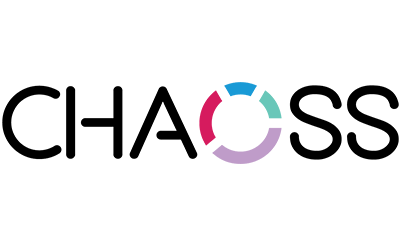
CHAOSS
FOSS Management
Started Date: 1970
The Community Health Analytics Open Source Software project (CHAOSS) is focused on creating the analytics and metrics to help define community health.
The project aims to establish standard implementation-agnostic metrics for measuring community activity, contributions, and health, which are objective and repeatable. As well as produce integrated open source software for analyzing software community development.
View Project
Chassis
Started Date: 1970
Chassis is an attempt at creating open standards designed for CSS libraries, JavaScript UI libraries, and web developers in general. This project will define standards for markup and class names for common widgets and patterns, as well as an implementation of those standards.
View Project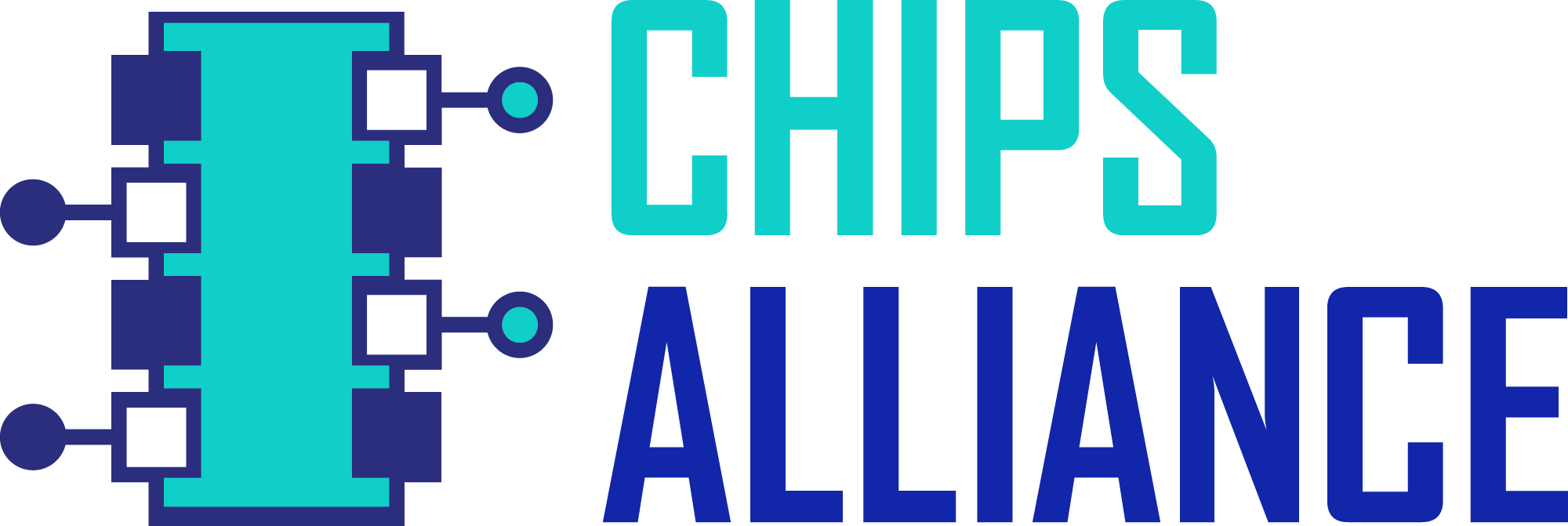
Chips Alliance
Started Date: 2019
CHIPS (Common Hardware for Interfaces, Processors and Systems) Alliance harnesses the energy of open source collaboration to accelerate hardware development.
View Project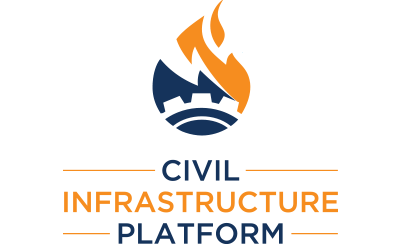
Civil Infrastructure Platform
Started Date: 2016
The Civil Infrastructure Platform (CIP) is a collaborative, open source project hosted by The Linux Foundation. The CIP project is focused on establishing an open source “base layer” of industrial grade software to enable the use and implementation of software building blocks in civil infrastructure projects. Currently, civil infrastructure systems are built from the ground up, with little re-use of existing software building blocks.
The CIP project intends to create reusable building blocks that meet the safety, reliability, and other requirements of industrial and civil infrastructure. By establishing this “base layer,” CIP aims to:
- Speed up implementation of civil infrastructure systems
- Build upon existing open source foundations and expertise without reinventing non-domain specific technology
- Establish (de facto) standards by providing a base layer reference implementation
- Contribute to and influence upstream projects regarding industrial needs
- Motivate suppliers to actively support this platform / provide an implementation
- Promote long-term stability and maintainability of the base layer of code
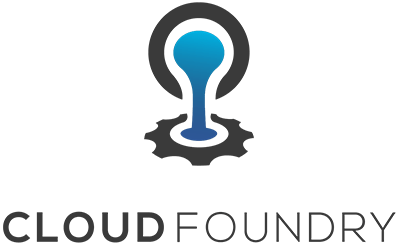
Cloud Foundry
Cloud
Started Date: 2014
The Cloud Foundry Foundation is an independent nonprofit organization formed to sustain the development, promotion, and adoption of Cloud Foundry as the industry standard multi-cloud platform. Cloud Foundry makes it faster and easier to build, test, deploy, and scale applications.
The Cloud Foundry Foundation aims to:
- -Establish and sustain Cloud Foundry as the global industry standard Platform-as-a-Service (PaaS) open source technology with a thriving ecosystem
- -Deliver continuous quality, value, and innovation to users, operators, and providers of Cloud Foundry technology
- -Provide a vibrant agile experience for the community’s contributors that delivers the highest quality cloud-native applications and software, at high velocity with global scale.
View Project
The Cloud Foundry Foundation is an independent nonprofit organization formed to sustain the development, promotion, and adoption of Cloud Foundry as the industry standard multi-cloud platform. Cloud Foundry makes it faster and easier to build, test, deploy, and scale applications.
The Cloud Foundry Foundation aims to:
- -Establish and sustain Cloud Foundry as the global industry standard Platform-as-a-Service (PaaS) open source technology with a thriving ecosystem
- -Deliver continuous quality, value, and innovation to users, operators, and providers of Cloud Foundry technology
- -Provide a vibrant agile experience for the community’s contributors that delivers the highest quality cloud-native applications and software, at high velocity with global scale.
Cloud Native Computing Foundation
Cloud
Started Date: 2015
The Cloud Native Computing Foundation’s mission is to create and drive the adoption of a new computing paradigm that is optimized for modern distributed systems environments. The participants believe that systems architected will be:
- Container packaged: Running in application containers as a unit of application deployment and as a mechanism to achieve high levels of resource isolation in order to improve the overall developer experience, foster code reuse, and simplify operations
- Dynamically managed: Actively scheduled and managed by a central orchestrating process to radically improve machine efficiency while reducing the cost associated with maintenance and operations
- Micro-services oriented: Loosely coupled with dependencies explicitly described through service endpoints with the goal of significantly increasing the overall agility and maintainability of applications
CNI
Started Date: 2017
The CNI (Container Network Interface) project consists of a specification and libraries for writing plugins to configure network interfaces in Linux containers, along with a number of supported plugins. CNI concerns itself only with network connectivity of containers and removing allocated resources when the container is deleted. Because of this focus, CNI has a wide range of support and the specification is simple to implement. As well as the specification, this repository contains the Go source code of a library for integrating CNI into applications, an example command-line tool, a template for making new plugins, and the supported plugins. The template code makes it straight-forward to create a CNI plugin for an existing container networking project. CNI also makes a good framework for creating a new container networking project from scratch.
View Project
Code Aurora
Embedded & IoT
Started Date: 2009
Code Aurora is a consortium of companies with open source projects serving the mobile wireless ecosystem. The projects host the tested open source code needed to provide upstream enablement for innovative, performance optimized support for system on a chip (SoC) products and related ecosystems, and also serves as a staging area for code that is submitted to upstream projects such as the Linux kernel and Android.
View Project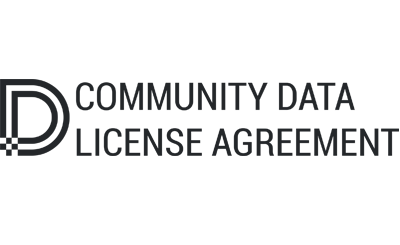
Community Data License Agreement
FOSS Management
Started Date: 1970
CDLA license agreements establish a framework for collaborative sharing of data based on principles proven to work in open source software communities.
View ProjectConfidential Computing Consortium
Started Date: 2018
The Confidential Computing Consortium (CCC) brings together hardware vendors, cloud providers, and software developers to accelerate the adoption of Trusted Execution Environment (TEE) technologies and standards.
CCC is a project community at the Linux Foundation dedicated to defining and accelerating the adoption of confidential computing. It will embody open governance and open collaboration that has aided the success of similarly ambitious efforts. The effort includes commitments from numerous member organizations and contributions from several open source projects.
Confidential Computing protects data in use by performing computation in a hardware-based Trusted Execution Environment. These secure and isolated environments prevent unauthorized access or modification of applications and data while in use, thereby increasing the security assurances for organizations that manage sensitive and regulated data.
View Projectcontainerd
Cloud
Started Date: 2017
An industry-standard container runtime with an emphasis on simplicity, robustness and portability.
View Project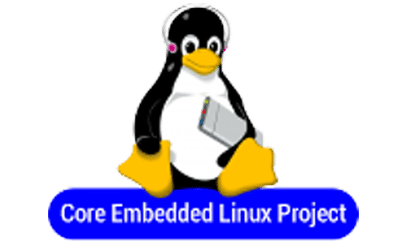
Core Embedded Linux Project
Embedded & IoT
Started Date: 1970
The mission of the Core Embedded Linux Project is to provide a vendor neutral place to discuss and establish core embedded Linux technologies. Any Linux Foundation member company can apply for membership in the Core Embedded Linux Project. The meaning of the CE acronym was originally Consumer Electronics but it has been changed to Core Embedded, because nowadays Linux is used in many kind of products, including not only consumer electronics but also industrial systems or Internet of Things applications.
The Core Embedded Linux Project aims to cover wider technologies than other collaborative projects. We always try to find or focus on new requirements or topics for embedded Linux systems. These requirements and topics proposed by member companies are based on actual requirements that need to be solved in collaboration with the open source community. The Core Embedded Linux Project is a group that can be used to research and discuss topics that are not covered by another Linux Foundation project. For example, the Civil Infrastructure Platform project started as an investigation project inside the Core Embedded Linux Project.
Major Activities:
- Open Project Contract Work: Each year, the Core Embedded Linux Project spends money on contract work to improve Linux for use in embedded systems. Some of projects that the Core Embedded Linux Project has sponsored in the past include Linux-tiny, DirectFB enhancement, smem, U-boot and kexecboot improvements, and Squashfs and YAFFS mainlining. The process is open to the public, and members of the public submit to the Core Embedded Linux Project ideas and proposals for project that they think should be worked on to enhance embedded Linux. For more detail about proposal format, contact, and deadline, please visit Embedded Linux Wiki. – http://elinux.org/CEWG_Open_Project_Proposals.
- Long Term Support Initiative (LTSI): To minimize fragmented use of Linux in embedded systems, and accelerate further innovation of Linux by incorporating innovations from embedded system engineers, the Core Embedded Linux Project sponsors the LTSI project.This project consists of publishing a kernel source tree, based on the community’s long-term stable tree, and maintaining it with back-ported features and innovations which are beneficial for the embedded industry. The life of the community’s long-term stable tree is expected to be 2 years, and that of the long-term industry tree is expected to be 2-3 years – which corresponds to the typical life of consumer electronics products like Smartphones. For more detail, please visit LTSI web site.
- Regional Technical Conference (Jamboree): The Core Embedded Linux Project hosts a series of regional technical conferences, called technical jamborees, in Japan. The jamborees are not formal technical conferences, but an informal meeting to exchange ideas and discuss technologies freely in an open source community manner. For information about the date and location of upcoming Jamborees, please visit Embedded Linux Wiki.
- Embedded Linux Developer wiki (aka. Elinux wiki): The elinux wiki, at http://elinux.org, is maintained by the Core Embedded Linux Project, and serves as a collection point for information for embedded Linux developers. This site is open to public contributions and editing, and is a resource for the entire embedded Linux community. Several development boards have significant information on the site. There are articles and links to many resources for a wide variety of technical topics.
- Core Embedded Linux Project Proposals: Core Embedded Linux projects are proposed by its member companies to the Steering Committee for activity and support by members. Two projects that are currently in progress by the workgroup are:
- 5.1 Device Mainlining Project: This purpose of this project is to decrease the amount of out-of-mainline patches for the Linux kernel, for System-On-Chip processors used in modern consumer electronics products. More on the Device Mainlining Project.
- 5.2 Shared Embedded Linux Distribution Project: The goal of this project is to share the work of maintaining long-term support for an embedded distribution, by leveraging the work of the Debian project. More on the Shared Embedded Linux Distribution Project.
- CE Developer Mailing list: The workgroup maintains a mailing list for discussing the group’s initiatives, events, and projects, at https://lists.celinuxforum.org/mailman/listinfo/celinux-dev. This list is open to the public. The list is not intended for general technical support, or developer questions, but sometimes technical discussion threads from other lists are copied to this list. Announcements are made to this list about the Core Embedded Linux Project technical projects and events.
Membership Structure: The Core Embedded Linux Project has two key organizations. One is the Steering Committee (SC) that handles operational issues such as strategies, directions and funding, and the other is the Architecture Group (AG) which handles technical issues that include open projects and technical initiatives such as the LTSI. New SC members are elected by a vote of current SC members, for a term of 2 years.
Becoming a Core Embedded Linux Project AG member:
- Apply for AG membership by with indicating to the Core Embedded Linux Project SC that you are a corporate member and interested in becoming an AG member. (Note that you do not need to be an AG member to participate in any of Core Embedded Linux Project activities such as open projects, technical events and technical initiatives like the LTSI. Those are OPEN for everyone. However, if you want to actively participate in discussions about the technical direction of workgroup initiatives and help make resourcing decisions about the initiatives, you may want to be an AG member.)
- Once your membership is approved by the Steering Committee, you will be added in the AG mailing list, and receive invitations to AG meetings.
References:
View Project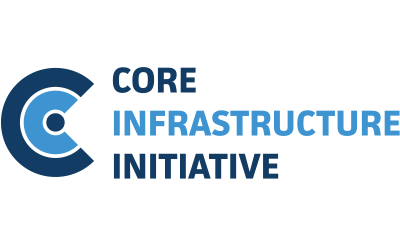
Core Infrastructure Initiative
Security
Started Date: 2014
The Core Infrastructure Initiative (CII) is a multimillion-dollar project to fund and support critical elements of the global information infrastructure. It is organized by The Linux Foundation and supported by Amazon Web Services, Adobe, Bloomberg, Cisco, Dell, Facebook, Fujitsu, Google, Hitachi, HP, Huawei, IBM, Intel, Microsoft, NetApp, NEC, Qualcomm, RackSpace, salesforce.com, and VMware. CII enables technology companies to collaboratively identify and fund open source projects that are in need of assistance, while allowing the developers to continue their work under the community norms that have made open source so successful.
The first project to receive funds from the Initiative is OpenSSL, which received fellowship funding for key developers as well as other resources to assist the project in improving its security, enabling outside reviews, and improving responsiveness to patch requests. CII, working with the Open Crypto Audit Project, has retained the NCC Group to audit OpenSSL code. CII was formed as a response to the Heartbleed security crisis; however, the Initiative’s efforts will not be restricted to crypto-related issues.
CII is transitioning from point fixes to holistic solutions for open source security.
View ProjectCoreDNS
Cloud
Started Date: 2017
CoreDNS provides DNS service discovery for the cloud and more.
View Project
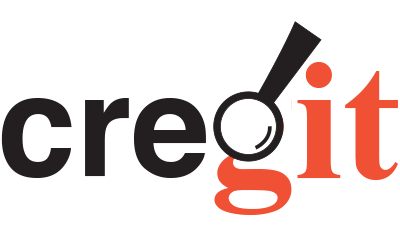
cregit
FOSS Management
Started Date: 2017
The goal of the project is to explore how source code evolves with each contribution and over time. One of its main applications is the creation of a token-based view of the source code, deconstructing the code into the smallest parseable units recognized by a compiler. A token-based view of git blame data shows, for each token in the corresponding source code, the commit that introduced token or last modified it and links to any relevant discussions of that change in mailing lists.
View Project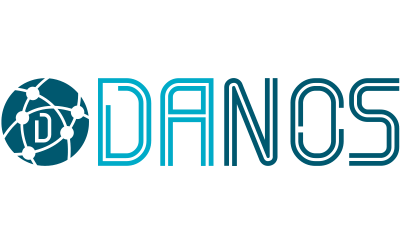
Danos
Networking
Started Date: 2018
The Disaggregated Network Operating System (DANOS) project enables community collaboration across network hardware, forwarding, and operating system layers. DANOS is initially based on AT&T’s dNOS software framework, which provides an open, cost-effective, and flexible alternative to traditional networking operating systems. Moving forward, the project will incorporate contributions from complementary open source communities to build a standardized distributed network operating system.
View ProjectDelta Lake
Started Date: 1970
Delta Lake is an open-source storage layer that brings ACID transactions to Apache Spark™ and big data workloads.
View ProjectDent
Started Date: 1970
As a new Linux Foundation project, DENT will utilize the Linux Kernel, Switchdev, and other Linux based projects as the basis for building a new standardized network operating system without abstractions or overhead. All underlying infrastructure — including ASIC and Silicon for networking and datapath — will be treated equally; while existing abstractions, APIs, drivers, low-level overhead, and other open software will be simplified. DENT will unite silicon vendors, ODMs, SIs, OEMs, and end users across all verticals and enable the transition to disaggregated networks.
View Project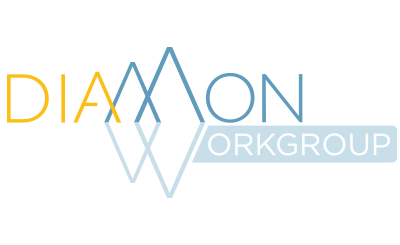
DiaMon Workgroup
Blockchain & Data
Started Date: 2015
The complexity of systems is growing rapidly; multi-core introduces notoriously difficult-to-find bugs; hypervisors, virtual machines, middleware, and cloud technologies create extra layers; heterogeneous systems are now common in embedded systems; the Internet of Things requires interactions between different types of devices… the list goes on. The increased complexity is creating tricky problems requiring a significant amount of investigation with programs that are not typically created to be diagnosed together, for example open source components, libraries, in-house code, and proprietary third party. With open source adoption, we now have the opportunity to create a de facto widely used tracing and monitoring infrastructure. The DiaMon Workgroup would like to improve interoperability between those tools as well as improve Linux-based tracing, profiling, logging, and monitoring features. The Workgroup aims to accelerate this development by making it easier to work together on common pieces.
View Project
DIF
Started Date: 2018
DIF is an engineering-driven organization focused on developing the foundational elements necessary to establish an open ecosystem for decentralized identity and ensure interop between all participants.
View Project
Dojo
Started Date: 1970
Dojo is a progressive TypeScript framework for building modern web apps with a focus on developer ergonomics.
View Project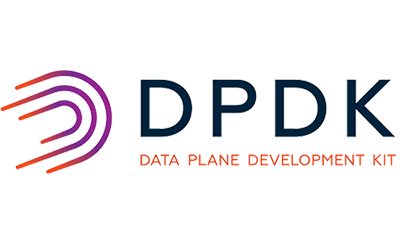
DPDK
Networking
Started Date: 1970
DPDK is the Data Plane Development Kit that consists of libraries to accelerate packet processing workloads running on a wide variety of CPU architectures.
View Project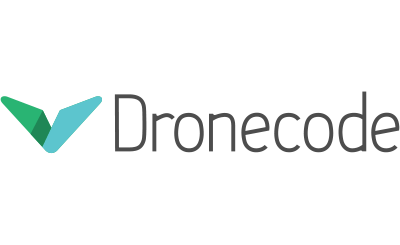
Dronecode
Embedded & IoT
Started Date: 2014
The Dronecode Project is an open source, collaborative project that brings together existing and future open source drone projects under a nonprofit structure governed by The Linux Foundation. The result will be a common, shared open source platform for Unmanned Aerial Vehicles (UAVs).
Dronecode will encourage the development of open source consumer and commercial UAV software by building and supporting a community of developers and providing them the resources and tools to help them innovate. The ultimate goal is to maximize adoption of the project’s code for the benefit of users with cheaper, better, and more reliable UAV software. The platform has already been adopted by the organizations on the forefront of drone technology.
Dronecode creates a neutral and transparent body that will leverage a contribution-based meritocracy that allows other parties and developers to influence and participate in the development and direction of the software. The project will provide coordination and prioritize funding for initiatives. Dronecode serves as a trusted and neutral home to become the de facto standard platform for drone/robotics open projects. By partnering with The Linux Foundation, the Dronecode community will have access to collaboration best practices and resources to spread the reach of collaboratively-developed and open software.
View Project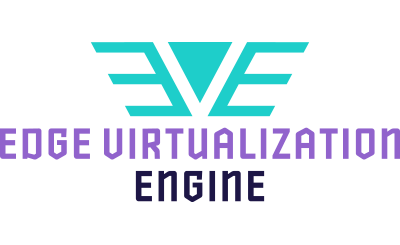
Edge Virtualization Engine (EVE)
Started Date: 1970
Project EVE (Edge Virtualization Engine) aims to develop an open, agnostic and standardized architecture unifying the approach to developing and orchestrating cloud-native applications across the enterprise on-premises edge.
View Project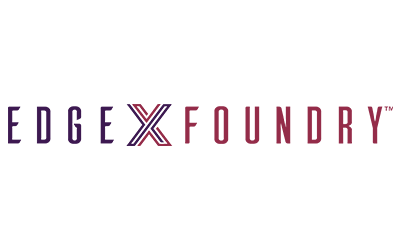
EdgeX Foundry
Embedded & IoT
Started Date: 2017
EdgeX Foundry™ is a vendor-neutral open source project hosted by The Linux Foundation building a common open framework for IoT edge computing. At the heart of the project is an interoperability framework hosted within a full hardware- and OS-agnostic reference software platform to enable an ecosystem of plug-and-play components that unifies the marketplace and accelerates the deployment of IoT solutions.
EdgeX is an important enabler for interested parties to freely collaborate on open and interoperable IoT solutions built using existing connectivity standards combined with their own proprietary innovations.
View Project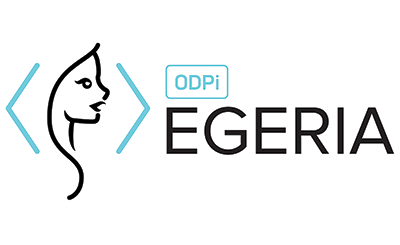
Egeria
Started Date: 1970
Industry’s First Open Metadata Standard Helps Organizations Better Understand, Manage and Gain Value from Data
View ProjectElastic Deep Learning
Started Date: 2019
Elastic Deep Learning using PaddlePaddle and Kubernetes.
View Project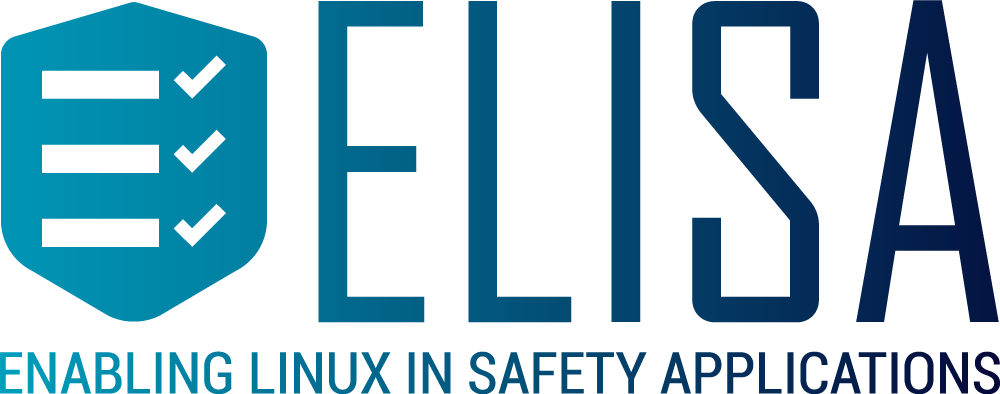
ELISA
Started Date: 1970
The Enabling Linux in Safety Applications (ELISA) open source project is working to create a shared set of tools and processes to help companies build and certify Linux-based safety-critical applications and systems whose failure could result in loss of human life, significant property damage or environmental damage. Building off the work being done by SIL2LinuxMP project and Real-Time Linux project, ELISA makes it easier for companies to build safety-critical systems such as robotic devices, medical devices, smart factories, transportation systems and autonomous driving using Linux.
View ProjectEnvoy
Started Date: 2017
Envoy, a CNCF project, is a service mesh originally created at Lyft, and now used inside companies including Google, Apple, Netflix, and more. Envoy is written in C++ and designed to minimize memory and CPU footprint, while providing capabilities such as load balancing and deep observability of network, tracing and database activity in microservices environments.
View Project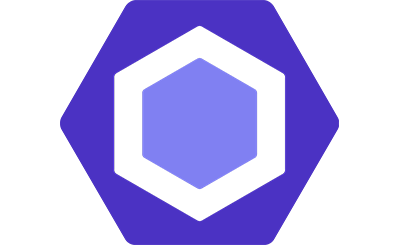
ESLint
Started Date: 1970
ESLint is an open source project originally created by Nicholas C. Zakas in June 2013. Its goal is to provide a pluggable linting utility for JavaScript.
View Project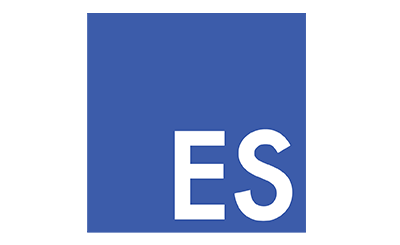
Esprima
Started Date: 1970
Esprima is a high performance, standard-compliant ECMAScript parser written in ECMAScript (also popularly known as JavaScript).
View Projectetcd
Started Date: 2018
etcd is a distributed reliable key-value store for the most critical data of a distributed system, with a focus on being:
- Simple: well-defined, user-facing API (gRPC)
- Secure: automatic TLS with optional client cert authentication
- Fast: benchmarked 10,000 writes/sec
- Reliable: properly distributed using Raft
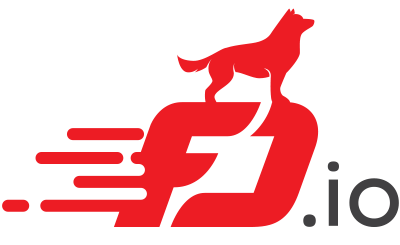
FD.io
Networking
Started Date: 2016
The Fast Data Project (FD.io), “Fido,” is a Linux Foundation project that provides an IO services framework for the next wave of network and storage software. Architected as a collection of subprojects, FD.io provides a modular, extensible user space IO services framework that supports rapid development of high-throughput, low-latency, and resource-efficient IO services.
The design of FD.io is hardware, kernel, and deployment (bare metal, VM, container) agnostic. FD.io is based on the Vector Packet Processing (VPP) technology. FD.io provides an out-of-the-box programmable vSwitch/vRouter. VPP runs in user space on multiple architectures, including x86, ARM, and Power and is deployed on various platforms including x86 servers and embedded devices. One of the immediate benefits of VPP is that it’s two orders of magnitude faster than currently available open source options.
View Project
Federated AI Ecosystem
Started Date: 1970
FATE is an open-source project initiated by WeBank’s AI Group to provide a secure computing framework for building the federated AI ecosystem. It implements a secure computation version of various machine learning algorithms, including logistic regression, tree-based algorithms, deep learning and transfer learning. For developers who need more than out-of-box algorithms, FATE provides a framework to implement new machine learning algorithms in a secure MPC architecture.
View ProjectFINOS
Started Date: 2020
Providing an independent setting to deliver software and standards that address common industry challenges and drive innovation.
View ProjectFluentd
Cloud
Started Date: 2010
Fluentd is an open source logging solution to unify data collection and consumption.
View Project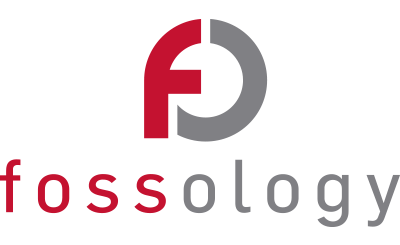
FOSSology
FOSS Management
Started Date: 2015
FOSSology is a proven, trusted tool for open source license compliance. Already in use by a variety of companies and law firms such as HP Partners, Sullivan & Worcester, and Bloomberg, the project allows companies to run license and copyright scans effortlessly, among other features. FOSSology answers a growing need for compliance tools and projects hosted by a neutral party.
View Project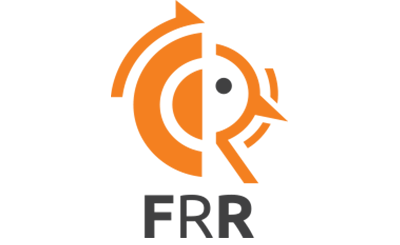
FRRouting
Networking
Started Date: 2017
FRRouting (FRR) is an IP routing protocol suite for Unix and Linux platforms which includes protocol daemons for BGP, IS-IS, LDP, OSPF, PIM, and RIP, and the community is working to make this the best routing protocol stack available.
View Project
Globalize
Started Date: 1970
Globalize is a JavaScript library for internationalization and localization that leverages the official Unicode CLDR JSON data
View Project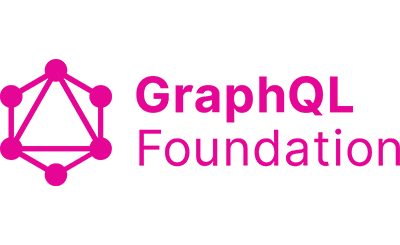
GraphQL
Started Date: 2018
An open and neutral home for the GraphQL community to enable widespread adoption and help accelerate development and the surrounding ecosystem
View ProjectgRPC
Cloud
Started Date: 2015
gRPC is a high-performance, open source universal RPC framework.
View Project
Grunt
Started Date: 1970
Grunt is a JavaScript command line utility designed to help automate repetitive project tasks such as minification, compilation, unit testing, linting and deployment.
View ProjectHarbor
Started Date: 2018
Harbor is an open source cloud native registry that stores, signs, and scans container images for vulnerabilities.
Harbor solves common challenges by delivering trust, compliance, performance, and interoperability. It fills a gap for organizations and applications that cannot use a public or cloud-based registry, or want a consistent experience across clouds.
View ProjectHelm
Cloud
Started Date: 2018
Helm helps you manage Kubernetes applications — Helm Charts helps you define, install, and upgrade even the most complex Kubernetes application. Charts are easy to create, version, share, and publish — so start using Helm and stop the copy-and-paste madness. The latest version of Helm is maintained by the CNCF – in collaboration with Microsoft, Google, Bitnami and the Helm contributor community.
View ProjectHorovod
Started Date: 2019
Distributed training framework for TensorFlow, Keras, and PyTorch.
View Project
HospitalRun
Started Date: 1970
HospitalRun is built to provide the most modern hospital information system possible to the least resourced environments.
View Project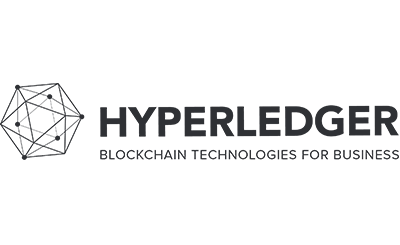
Hyperledger
Started Date: 2016
The Hyperledger Project (HLP) is a collaborative effort created to advance blockchain technology by identifying and addressing important features for a cross-industry open standard for distributed ledgers that can transform the way business transactions are conducted globally. It is a Linux Foundation Project and implements many open source best practices familiar to other leading projects.
The mission of the HLP is to:
- Create an enterprise grade, open source, distributed ledger framework and code base, upon which users can build and run robust, industry-specific applications, platforms, and hardware systems to support business transactions
- Create an open source, technical community to benefit the ecosystem of HLP solution providers and users, focused on blockchain and shared ledger use cases that will work across a variety of industry solutions
- Promote participation of leading members of the ecosystem, including developers, service and solution providers, and end users
- Host the infrastructure for HLP, establishing a neutral home for community infrastructure, meetings, events, and collaborative discussions, and providing structure around the business and technical governance of HLP
Hyperledger Burrow
Started Date: 2017
Hyperledger Burrow is one of the Hyperledger projects hosted by The Linux Foundation. Hyperledger Burrow was originally contributed by Monax and co-sponsored by Intel. Hyperledger Burrow provides a modular blockchain client with a permissioned smart contract interpreter partially developed to the specification of the Ethereum Virtual Machine (EVM).
View ProjectHyperledger Caliper
Started Date: 1970
Hyperledger Caliper is a blockchain benchmark tool and one of the Hyperledger projects hosted by The Linux Foundation. Hyperledger Caliper allows users to measure the performance of a specific blockchain implementation with a set of predefined use cases. Hyperledger Caliper will produce reports containing a number of performance indicators, such as TPS (Transactions Per Second), transaction latency, resource utilisation etc. The intent is for Caliper results to be used by other Hyperledger projects as they build out their frameworks, and as a reference in supporting the choice of a blockchain implementation suitable for a user’s specific needs. Hyperledger Caliper was initially contributed by developers from Huawei, Hyperchain, Oracle, Bitwise, Soramitsu, IBM and the Budapest University of Technology and Economics.
View ProjectHyperledger Cello
Started Date: 2017
Hyperledger Cello is a blockchain module toolkit and one of the Hyperledger projects hosted by The Linux Foundation. Hyperledger Cello aims to bring the on-demand “as-a-service” deployment model to the blockchain ecosystem to reduce the effort required for creating, managing and terminating blockchains. It provides a multi-tenant chain service efficiently and automatically on top of various infrastructures, e.g., baremetal, virtual machine, and more container platforms. Hyperledger Cello was initially contributed by IBM, with sponsors from Soramitsu, Huawei and Intel.
View ProjectHyperledger Composer
Started Date: 1970
Hyperledger Composer is a set of collaboration tools for building blockchain business networks that make it simple and fast for business owners and developers to create smart contracts and blockchain applications to solve business problems. Built with JavaScript, leveraging modern tools including node.js, npm, CLI and popular editors, Composer offers business-centric abstractions as well as sample apps with easy to test devops processes to create robust blockchain solutions that drive alignment across business requirements with technical development.
View ProjectHyperledger Explorer
Started Date: 2016
Hyperledger Explorer is a blockchain module and one of the Hyperledger projects hosted by The Linux Foundation. Designed to create a user-friendly Web application, Hyperledger Explorer can view, invoke, deploy or query blocks, transactions and associated data, network information (name, status, list of nodes), chain codes and transaction families, as well as any other relevant information stored in the ledger. Hyperledger Explorer was initially contributed by IBM, Intel and DTCC.
View ProjectHyperledger Fabric
Started Date: 1970
Hyperledger Fabric is a blockchain framework implementation and one of the Hyperledger projects hosted by The Linux Foundation. Intended as a foundation for developing applications or solutions with a modular architecture, Hyperledger Fabric allows components, such as consensus and membership services, to be plug-and-play. Hyperledger Fabric leverages container technology to host smart contracts called “chaincode” that comprise the application logic of the system. Hyperledger Fabric was initially contributed by Digital Asset and IBM, as a result of the first hackathon.
View ProjectHyperledger Grid
Started Date: 1970
Supply chain is commonly cited as one of the most promising distributed ledger use-cases. Initiatives focused on building supply chain solutions will benefit from shared, reusable tools. Hyperledger Grid seeks to assemble these shared capabilities in order to accelerate the development of ledger-based solutions for all types of cross-industry supply chain scenarios.
Hyperledger Grid initially intends to provide reference implementations of supply chain-centric data types, data models, and smart contract based business logic – all anchored on existing, open standards and industry best practices. Second it will showcase in authentic and practical ways how to combine components from the Hyperledger stack into a single, effective business solution.
Hyperledger Grid is a framework. It’s not a blockchain and it’s not an application. Grid is an ecosystem of technologies, frameworks, and libraries that work together, letting application developers make the choice as to which components are most appropriate for their industry or market model.
View ProjectHyperledger Indy
Started Date: 1970
Hyperledger Indy is a distributed ledger, purpose-built for decentralized identity. It provides tools, libraries, and reusable components for creating and using independent digital identities rooted on blockchains or other distributed ledgers so that they are interoperable across administrative domains, applications, and any other “silo.”
Because distributed ledgers cannot be altered after the fact, it is essential that use cases for ledger-based identity carefully consider foundational components, including performance, scale, trust model, and privacy. In particular, Privacy by Design and privacy-preserving technologies are critically important for a public identity ledger where correlation can take place on a global scale.
For all these reasons, Hyperledger Indy has developed specifications, terminology, and design patterns for decentralized identity along with an implementation of these concepts that can be leveraged and consumed both inside and outside the Hyperledger Consortium.
View ProjectHyperledger Iroha
Started Date: 1970
Hyperledger Iroha is a blockchain platform implementation and one of the Hyperledger projects hosted by The Linux Foundation. Hyperledger Iroha is written in C++ incorporating unique chain-based Byzantine Fault Tolerant consensus algorithm, called Yet Another Consensus and the BFT ordering service.
The manipulation of accounts and digital assets is supported with the small set of fast commands and queries. The Iroha peers are also validations nodes that can distribute half-signed transactions over the Gossip protocol as part of the multi-signature transactions. In conjunction with the powerful role-based permission model that incorporates grant capabilities, the end-user applications are endless. The blocks are stored in files while the ledger state is stored in the PostgreSQL database.
The use of the SQL database supports implementation of complex analytics against the ledger and straightforward reporting. To use Iroha, the client uses one of the supported client libraries to create a protobuf/gRPC message that is then processed by the Iroha platform. Written in C++, Hyperledger Iroha provides a small set of fast commands and queries that cover most common operations for the digital asset management and digital identity management.
The blockchain-powered applications could be written in Python, Java, JavaScript and C++ as well as for the Android and iOS mobile platforms. Hyperledger Iroha was contributed by Soramitsu, Hitachi, NTT Data and Colu.
View ProjectHyperledger Quilt
Started Date: 2017
Hyperledger Quilt is a business blockchain tool and one of the Hyperledger projects hosted by The Linux Foundation. Hyperledger Quilt offers interoperability between ledger systems by implementing the Interledger protocol (also known as ILP), which is primarily a payments protocol and is designed to transfer value across distributed ledgers and non-distributed ledgers. The Interledger protocol provides atomic swaps between ledgers (even non-blockchain or distributed ledgers) and a single account namespace for accounts within each ledger. With the addition of Quilt to Hyperledger, The Linux Foundation now hosts both the Java (Quilt) and JavaScript (Interledger.js) Interledger implementations. Hyperledger Quilt was initially contributed by NTT Data and Ripple.
View ProjectHyperledger Sawtooth
Started Date: 1970
Hyperledger Sawtooth is a modular platform for building, deploying, and running distributed ledgers. Distributed ledgers provide a digital record (such as asset ownership) that is maintained without a central authority or implementation.
View ProjectHyperledger Ursa
Started Date: 2018
Hyperledger Ursa is a shared cryptographic library that would enable people (and projects) to avoid duplicating other cryptographic work and hopefully increase security in the process. The library would be an opt-in repository for projects (and, potentially others) to place and use crypto. Hyperledger Ursa consists of sub-projects, which are cohesive implementations of cryptographic code or interfaces to cryptographic code. There are currently two sub-projects:
- “Base Crypto” Library – Our first sub-project will be our “base crypto” library, of which the main feature is our shared modular signature library. This has the implementation of several different signature schemes with a common API, which allows for blockchain builders to change signature schemes almost on-the-fly (or to use and support multiple signature schemes easily).
- Z-Mix – Our second sub-project will be Z-mix. Z-mix will offer a generic way to create zero-knowledge proofs that prove statements about multiple cryptographic building blocks, including signatures, commitments, and verifiable encryption. The goal of this subproject is to provide a single flexible and secure implementation to construct such zero-knowledge proofs. Z-mix consists of C-callable code but there are also convenience wrappers for various programming languages.

Interledger.js
Started Date: 1970
Interledger.js enables instant payments and micropayments in any currency, across many payment networks using the Interledger Protocol (ILP).
View Project
Intern
Started Date: 1970
Intern is a complete test stack for JavaScript or TypeScript designed to help you write and run consistent, high-quality test cases for your JavaScript or TypeScript libraries and applications.
View Project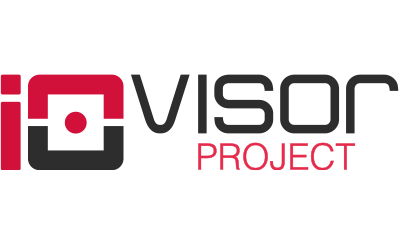
IO Visor Project
Networking
Started Date: 2015
The IO Visor Project is an open source, technical community where industry participants may easily contribute to and adopt the project’s technology for an open programmable data plane for modern IO and networking applications. By providing a programmable data plane and development tools to simplify the creation and sharing of dynamic IO modules, IO Visor Project enables a new way to innovate, develop, and share IO and networking functions with the community.
View ProjectJaeger
Started Date: 2017
Jaeger, a CNCF project, is a distributed tracing system developed by Uber to monitor its large microservices environment, and is now used a collection of companies including Red Hat, SeatGeek, and Under Armour. Jaeger was designed to be highly scalable and available, and provides native support for the OpenTracing standard and numerous storage backends. It features a modern UI and is designed to integrate with cloud-native systems such as OpenTracing, Kubernetes, and Prometheus.
View Project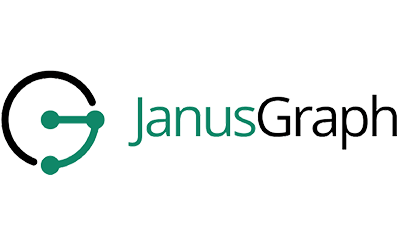
JanusGraph
Started Date: 1970
JanusGraph is a scalable graph database optimized for storing and querying graphs containing hundreds of billions of vertices and edges distributed across a multi-machine cluster. JanusGraph is a transactional database that can support thousands of concurrent users executing complex graph traversals in real time.
In addition, JanusGraph provides the following features:
- Elastic and linear scalability for a growing data and user base.
- Data distribution and replication for performance and fault tolerance.
- Multi-datacenter high availability and hot backups.
- Support for ACID and eventual consistency.
- Support for various storage backends:
- Support for global graph data analytics, reporting, and ETL through integration with big data platforms:
- Support for geo, numeric range, and full-text search via:
- Native integration with the TinkerPop graph stack:
- Open source under the Apache 2 license.

Jed
Started Date: 1970
Jed is a collection of interoperable tools to help facilitate the full process of internationalizing applications in JavaScript.
View ProjectJenkins
Started Date: 2019
Jenkins is the leading open source automation server supported by a large and growing community of developers, testers, designers and other people interested in continuous integration, continuous delivery and modern software delivery practices. Built on the Java Virtual Machine (JVM), it provides more than 1,500 plugins that extend Jenkins to automate with practically any technology software delivery teams use.
View ProjectJenkins X
Started Date: 2019
Jenkins X is an open source CI/CD solution for modern cloud applications on Kubernetes. Jenkins X provides pipeline automation, built-in GitOps and preview environments to help teams collaborate and accelerate their software delivery at any scale.
View Project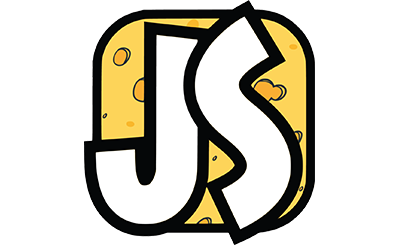
JerryScript
Started Date: 1970
JerryScript is a lightweight, fully-featured JavaScript engine for Internet of Things devices, which implements the full ECMAScript 5.1 standard bringing the approachability and power of JavaScript to the IoT space and supports on-device compilation, execution and provides access to peripherals from JavaScript.
View Project
Joint Development Foundation
Started Date: 2018
The Linux Foundation and the Joint Development Foundation plan to provide greater capabilities for communities to engage in open source and standards development to speed industry adoption.
View Project
jQuery
Started Date: 1970
jQuery is a fast, small, and feature-rich JavaScript library. It makes things like HTML document traversal and manipulation, event handling, animation, and Ajax much simpler with an easy-to-use API that works across a multitude of browsers.
View Project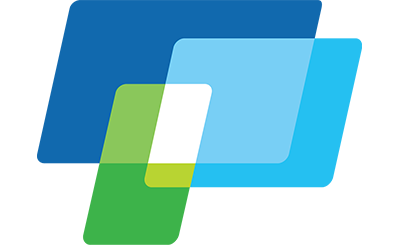
jQuery Mobile
Started Date: 1970
jQuery Mobile is a unified, HTML5-based user interface system for all popular mobile device platforms, built on the rock-solid jQuery and jQuery UI foundation. Its lightweight code is built with progressive enhancement, and has a flexible, easily themeable design.
View Project
jQuery UI
Started Date: 1970
jQuery UI is a curated set of user interface interactions, effects, widgets, and themes built on top of the jQuery JavaScript Library. Whether you’re building highly interactive web applications or you just need to add a date picker to a form control, jQuery UI is the perfect choice.
View Project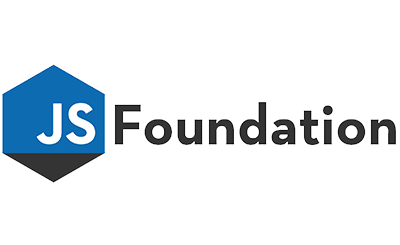
JS Foundation
Platforms
Started Date: 2012
The JS Foundation is focused on mentoring projects across the entire JavaScript spectrum: client and server side application libraries; mobile application testing frameworks; JavaScript engines; and technologies pushing the boundaries of the JavaScript ecosystem.
By creating a center of gravity for the open source JavaScript ecosystem, the JS Foundation aims to drive broad adoption and ongoing development of key JavaScript solutions and related technologies and to facilitate collaboration within the JavaScript development community to ensure those projects maintain the quality and diverse contribution bases that provide for long-term sustainability.
View ProjectKernel CI
Started Date: 2019
KernelCI is a community-based open source distributed test automation system focused on upstream kernel development.
View ProjectKubernetes
Cloud
Started Date: 2014
Kubernetes is an open-source system for automating deployment, scaling, and management of containerized applications.
View Project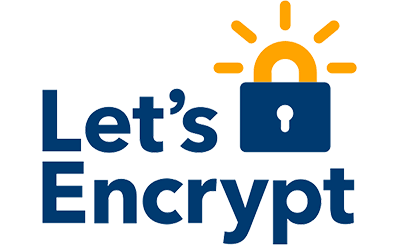
Let’s Encrypt
Security
Started Date: 2014
Let’s Encrypt is a free, automated, and open certificate authority (CA), run for the public’s benefit. Let’s Encrypt is a service provided by the Internet Security Research Group (ISRG).
The key principles behind Let’s Encrypt are:
- Free: Anyone who owns a domain name can use Let’s Encrypt to obtain a trusted certificate at zero cost
- Automatic: Software running on a web server can interact with Let’s Encrypt to painlessly obtain a certificate, securely configure it for use, and automatically take care of renewal
- Secure: Let’s Encrypt will serve as a platform for advancing TLS security best practices, both on the CA side and by helping site operators properly secure their servers
- Transparent: All certificates issued or revoked will be publicly recorded and available for anyone to inspect
- Open: The automatic issuance and renewal protocol will be published as an open standard that others can adopt
- Cooperative: Much like the underlying internet protocols themselves, Let’s Encrypt is a joint effort to benefit the community, beyond the control of any one organization
LF Deep Learning
Started Date: 1970
LF AI is an umbrella foundation of the Linux Foundation that supports open source innovation in artificial intelligence, machine learning, and deep learning.
View Project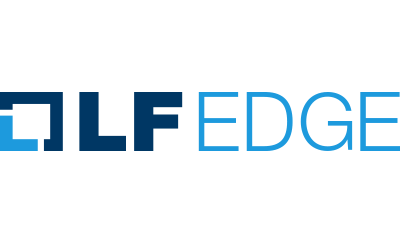
LF Edge
Started Date: 1970
LF Edge is an umbrella organization that aims to establish an open, interoperable framework for edge computing independent of hardware, silicon, cloud, or operating system.
View Project
LF Energy
Energy
Started Date: 1970
LF Energy is a new Linux Foundation project that supports multi-vendor collaboration and open source innovation in the energy and electricity sectors. Our ambition is to accelerate the energy transition and the diffusion of renewable energy resources, including the move to electric mobility and the proliferation of demand response peripheral devices—all while modernizing and protecting the grid. We are excited to foster progress and a neutral shared environment in this important space.
View Project
LF Networking
Started Date: 1970
LF Networking (LFN) brings together seven top networking projects to increase harmonization across platforms, communities, and ecosystems.
View ProjectLinkerd
Cloud
Started Date: 2017
Resilient service mesh for cloud native applications. Linkerd is a transparent proxy that adds service discovery, routing, failure handling, and visibility to modern software applications.
View Project
Resilient service mesh for cloud native applications. Linkerd is a transparent proxy that adds service discovery, routing, failure handling, and visibility to modern software applications.
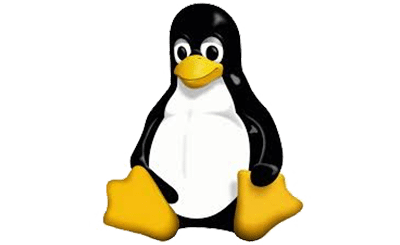
Linux
Started Date: 1991
Linux is the world’s most dominant operating system. Launched in 1991 by Linus Torvalds, it’s the quintessential example of user-led open source innovation, as it represented Linus’ desire for an operating system that he could run on his personal computer. Eventually the world took notice and everyone from hardware companies to emerging technology providers found themselves participating in the development of Linux and construction of solutions to run on top of the open source OS.
Between 2005 and 2015, over 11,800 individual developers from nearly 1,200 different companies contributed to the Linux kernel project, which has become a common, shared resource developed on a massive scale by companies who are otherwise fierce competitors in their industry segments.
Regular two-to-three month releases deliver stable updates to Linux users, adding significant new features, enhanced device support, and improved performance. The rate of change in the kernel has been historically high and continues to increase, with over 10,000 patches going into each recent kernel release. Each of these releases contains the work of over 1,400 developers representing over 200 corporations.
Additional Information:
View Project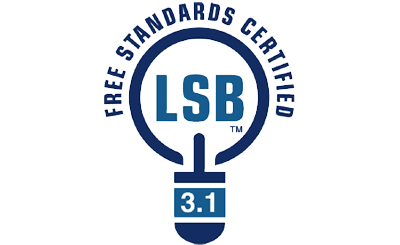
Linux Standard Base (LSB)
Started Date: 2001
When targeting Linux as a platform, application developers want to have some assurance that the code they write on one Linux distribution will run on other Linux distributions without having to go through extra effort. This matches their experiences on other popular platforms such as Windows or Mac OS X.
In addition, application developers want to ensure that the platform as a whole does not diverge. Even if an application works on today’s distributions, will it work on tomorrow’s?
The LSB has, as its core goal, to address these two concerns. We publish a standard that describes the minimum set of APIs a distribution must support, in consultation with the major distribution vendors. We also provide tests and tools which measure support for the standard, and enable application developers to target the common set. Finally, through our testing work, we seek to prevent unnecessary divergence between the distributions.
View Project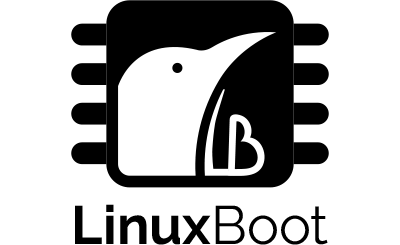
LinuxBoot
Platforms
Started Date: 1970
LinuxBoot is working to improve system boot performance and reliability by replacing some firmware functionality with a Linux kernel and runtime.
View Project
Lodash
Started Date: 1970
Lodash is a modern JavaScript utility library delivering modularity, performance & extras. Lodash makes JavaScript easier by taking the hassle out of working with arrays, numbers, objects, strings, etc.
View Project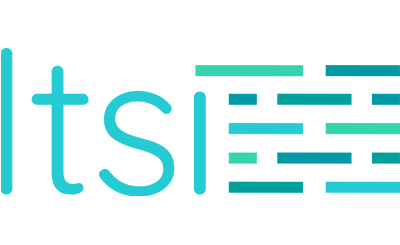
LTSI
Platforms
Started Date: 1970
The LTSI is an ecosystem-wide collaborative project to create and maintain long-term sustainable kernel for the industry that contains additional features such as cutting edge device support as well as security and bug fix patch available in community long-term maintenance kernel.
View Project
Mapzen
Started Date: 1970
Mapzen is an open source mapping platform focused on the core components of map display including search and navigation.
View Project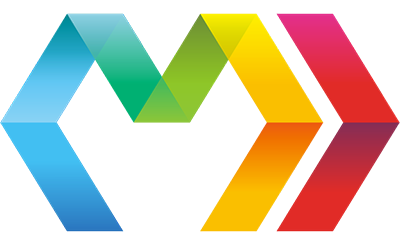
Marko
Started Date: 1970
Marko is a friendly (and fast!) UI library that makes building web apps with reactive UI components fun!
View Project
MLFlow
Started Date: 1970
MLflow is an open source platform to manage the ML lifecycle, including experimentation, reproducibility, deployment, and a central model registry.
View Project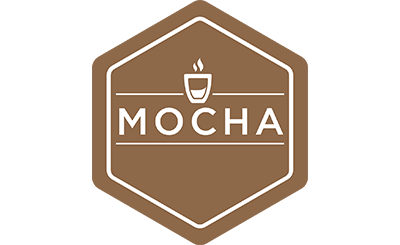
Mocha
Started Date: 1970
Mocha is a feature-rich JavaScript testing framework providing a command-line interface for Node.js as well as in-browser project testing capabilities.
View Project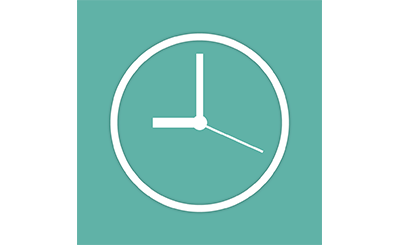
Moment
Started Date: 1970
Moment is a lightweight JavaScript date library for parsing, validating, manipulating, and formatting dates and it also provides much needed time zone support to JavaScript through Moment Timezone.
View ProjectNATS
Started Date: 2018
A hosted CNCF project, NATS is a mature, high-performance, lightweight, and secure cloud native messaging system. It implements publish/subscribe, request/reply, and distributed queue patterns to help create a performant and secure method of InterProcess Communication (IPC).
View Project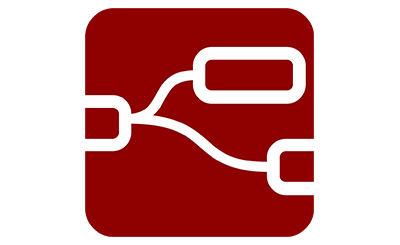
Node-RED
Started Date: 1970
Node-RED is a flow-based programming environment built on Node.js — commonly used in the IoT space — and aimed at creating event-driven applications that can easily integrate APIs and services.
View Project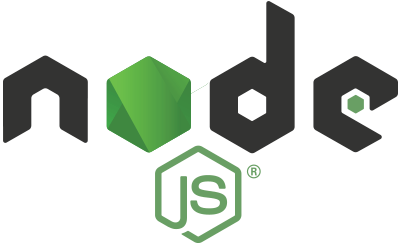
Node.js Foundation
Blockchain & Data, Platforms
Started Date: 2015
Node.js Foundation is a collaborative open source project dedicated to building and supporting the Node.js platform and other related modules. Node.js is used by tens of thousands of organizations in more than 200 countries and amasses more than 2 million downloads per month. It is the runtime of choice for high-performance, low latency applications, powering everything from enterprise applications to robots to API engines to cloud stacks to mobile websites.
The Node.js Foundation’s mission is to enable widespread adoption and help accelerate development of Node.js and other related modules through an open governance model that encourages participation, technical contribution, and a framework for long-term stewardship by an ecosystem invested in Node.js’ success.
View Project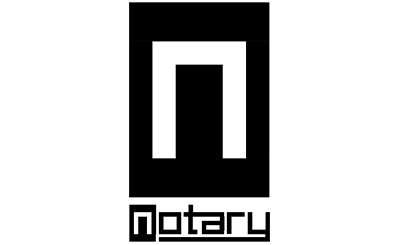
Notary
Started Date: 2017
Notary, a CNCF project, is an implementation of TUF, another CNCF project, designed to establish trust over digital content via strong cryptography. Notary does this by ensuring software is coming from the expected source, and that it has not been altered by anybody except its author. It gives developers a cryptographic tool to verify the provenance of containers and their content. Docker created Notary and contributed it to CNCF.
View ProjectO-RAN SC
Started Date: 1970
The O-RAN Software Community (SC) is a collaboration between the O-RAN Alliance and Linux Foundation with the mission to support the creation of software for the Radio Access Network (RAN). The RAN is the next challenge for the open source community. The O-RAN SC plans to leverage other LF network projects, while addressing the challenges in performance, scale, and 3GPP alignment.
View Project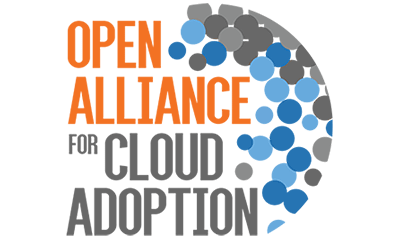
OACA
Cloud
Started Date: 2018
The OACA is community-led Linux Foundation project to enable innovative, safe and agile use of cloud computing for business value.
OACA is driven by the mission to share cloud adoption practices and continuously improve the maturity, safety, and scale of cloud adoption.
Our goal is to create a highly engaged and vibrant community of cloud practitioners collaborating to drive interoperability of practices and creation of value.
View Project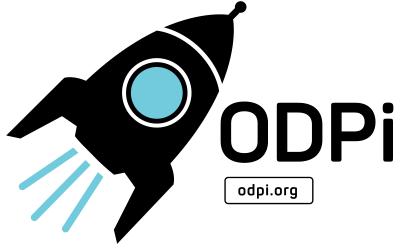
ODPi
Blockchain & Data
Started Date: 2015
ODPi is a nonprofit organization committed to simplification and standardization of the big data ecosystem with a common reference specification called ODPi Core.
Apache Hadoop, its components, and Apache Hadoop Distros are innovating very quickly and in different ways. This diversity, while healthy in many ways, also slows the big data ecosystem.
By providing a specification for a common runtime, reference implementations, and test suites, ODPi Core removes cost and complexity and accelerates the development of big data solutions.
View ProjectOEDI
Started Date: 1970
The Open Energy Data Initiative (OEDI) provides tools, methods, and data catalogs designed and curated to promote open data exchange within the energy sector.
View Project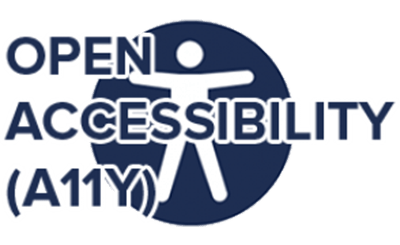
Open Accessibility (A11y) Group
Started Date: 2014
First chartered in 2004 as the Linux Foundation Accessibility Workgroup (LFA), the Open Accessibility (A11y) Group functions today within The Linux Foundation to establish free and open standards that enable comprehensive universal access to various computing platforms, applications, and services. Open A11y makes it easier for developers, ISVs, and distributions to support assistive technologies (AT). Assistive technologies enable individuals to make full use of computer-based technology despite variability in physical or sensory abilities due to illness, aging, or disability.
AT enables individuals who are blind or visually impaired to read online text, for example, and provides the means for individuals who do not have the use of their arms and hands to write and correspond. AT also enables individuals who cannot speak or hear to participate on the telephony interfaces of today—and will support their participation on the multimodal computer interfaces of tomorrow. The Linux Foundation supports the USPTO’s drive to improve the quality of software patents. The goal is to reduce the number of poor-quality patents that issue by increasing accessibility to open source software code and documentation that can be used as prior art during the patent examination process. For the open source community and many others, this means a reduction in the number of software patents that can be used to threaten software developers and users, and a resulting increase in innovation.
View Project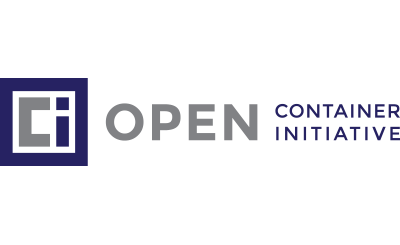
Open Container Initiative
Cloud
Started Date: 2015
In the past two years, there has been rapid growth in both interest in and usage of container-based solutions. Almost all major IT vendors and cloud providers have announced container-based solutions, and there has been a proliferation of startups founded in this area as well. While the proliferation of ideas in this space is welcome, the promise of containers as a source of application portability requires the establishment of certain standards around format and runtime. While the rapid growth of the Docker project has served to make the Docker image format a de facto standard for many purposes, there is widespread interest in a more formal, open, industry specification, which is:
- Not bound to higher-level constructs such as a particular client or orchestration stack
- Not tightly associated with any particular commercial vendor or project
- Portable across a wide variety of operating systems, hardware, CPU architectures, public clouds, etc.
Open Distributed Infrastructure Management (ODIM)
Started Date: 2020
A bold collaborative open source initiative to bring together a critical mass of infrastructure management and orchestration stakeholders to define and execute the collaborative work in several areas.
View ProjectOpen Glossary of Edge Computing
Started Date: 1970
The Open Glossary of Edge Computing project provides a concise collection of terms related to the field of edge computing. Launched in June 2018, the glossary improves communication and accelerates innovation through a shared vocabulary, offering a vendor-neutral platform with which to discuss compelling solutions offered by edge computing and the next generation Internet.
View Project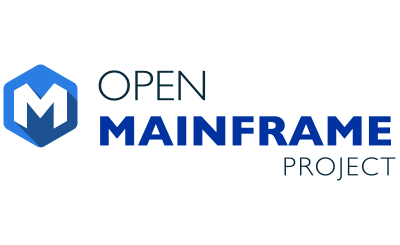
Open Mainframe Project
Started Date: 1970
The Open Mainframe Project is intended to serve as a focal point for deployment and use of the Linux OS in a mainframe computing environment. The Project intends to increase collaboration across the mainframe community and to develop shared tool sets and resources. Furthermore, the Project seeks to involve the participation of academic institutions to assist in teaching and educating the mainframe Linux engineers and developers of tomorrow.
The mission of the Open Mainframe Project is to:
- Create an open source, technical community in which industry and community participants may easily participate and contribute to the creation of assets and materials that will benefit the ecosystem around Linux and open source software on the mainframe
- Include participation of leading members of the ecosystem, including end users, solution providers, application developers, and systems administrators to ensure the Open Mainframe Project addresses the needs of the community
- Host the infrastructure for the open source project, establishing a neutral home for community meetings, events, and collaborative discussions, and providing structure around the business and technical governance of the project.
Open Manufacturing Platform
Started Date: 1970
The Open Manufacturing Platform (OMP) brings together business leaders and technologists from manufacturing companies, technology solution providers, systems integrators and more to drive innovation across the manufacturing community and value chain. We bring forward platform-agnostic solutions, open standards and technologies to enable smart manufacturing, break down data silos, and solve real problems for all of us—regardless of technology, solution provider, or cloud platform.
View Project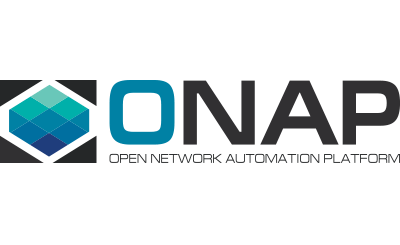
Open Network Automation Platform
Networking
Started Date: 2017
The new Open Network Automation Platform (ONAP) Project brings together open source ECOMP and Open Orchestrator Project (OPEN-O) to allow end users to automate, design, orchestrate, and manage services and virtual functions.
Alignment of the two projects creates a harmonized and comprehensive framework for real-time, policy-driven software automation of virtual network functions that will enable software, network, IT and cloud providers and developers to rapidly create new services.
View Project
The new Open Network Automation Platform (ONAP) Project brings together open source ECOMP and Open Orchestrator Project (OPEN-O) to allow end users to automate, design, orchestrate, and manage services and virtual functions.
Alignment of the two projects creates a harmonized and comprehensive framework for real-time, policy-driven software automation of virtual network functions that will enable software, network, IT and cloud providers and developers to rapidly create new services.
Open Policy Agent
Started Date: 2019
Policy-based control for cloud native environments. Empower your administrators with flexible, fine-grained control across your entire stack.
View Project
Open Printing
Started Date: 2005
Looking for configuration or driver help? Try our CUPS Quick Start or look for your printer in the Open Printing Database. For more detail, try Till’s Tutorial. If all else fails, ask a human in the forums. Researching a printer purchase? Simply browse our database. Looking for software? We host Foomatic, cups-filters, printer driver packages, and some other programs. Want to help? Here’s how.
View Project
Looking for configuration or driver help? Try our CUPS Quick Start or look for your printer in the Open Printing Database. For more detail, try Till’s Tutorial. If all else fails, ask a human in the forums. Researching a printer purchase? Simply browse our database. Looking for software? We host Foomatic, cups-filters, printer driver packages, and some other programs. Want to help? Here’s how.

Open Security Controller
Networking
Started Date: 1970
Open Security Controller Project is a software-defined security orchestration solution that automates deployment of virtualized network security functions, like next-generation firewall, intrusion prevention systems and application data controllers. The Open Security Controller Project enables East-West data center security, is scalable and reduces threats in software defined network environments.
View Project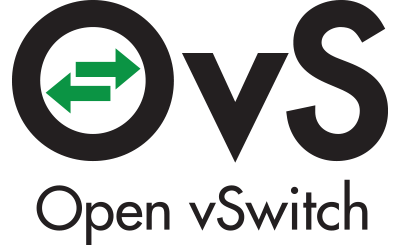
Open vSwitch
Networking
Started Date: 2009
In modern data centers, networking functions are increasingly performed by software running on servers, either as part of the application or within a hypervisor. While the traditional Layer-2 Linux bridge addresses many common networking tasks, Open vSwitch was created with a robust set of features and a high-performance design to address the rapidly growing needs of SDN and virtual networking use cases.
Today, OVS is used within multiple commercial products as well as large production environments. OVS has been ported to multiple virtualization platforms, switching chipsets, and networking hardware accelerators. OVS works on a wide variety of systems, including Linux, DPDK, Hyper-V, and FreeBSD. It is used in a variety of SDN applications, including NFV and network virtualization; it is the most widely used networking back-end in OpenStack.
Contributions to OVS span more than 300 individuals across companies including Cisco, Ericsson, Huawei, HP, IBM, Intel, Red Hat and VMware. The governance is managed by a group of the top committers to the project with a variety of backgrounds and affiliations.
View Project
OpenAPI Initiative
Platforms
Started Date: 1970
The OpenAPI Initiative (OAI) is focused on creating, evolving, and promoting a vendor-neutral API description format. SmartBear Software has donated the Swagger Specification to the OAI as the basis for this open specification.
APIs form the connecting glue between modern applications. Nearly every application uses APIs to connect with corporate data sources, third-party data services, or other applications. Creating an open description format for API services that is vendor-neutral, portable, and open is critical to accelerating the vision of a truly connected world.
View Project
The OpenAPI Initiative (OAI) is focused on creating, evolving, and promoting a vendor-neutral API description format. SmartBear Software has donated the Swagger Specification to the OAI as the basis for this open specification.
APIs form the connecting glue between modern applications. Nearly every application uses APIs to connect with corporate data sources, third-party data services, or other applications. Creating an open description format for API services that is vendor-neutral, portable, and open is critical to accelerating the vision of a truly connected world.
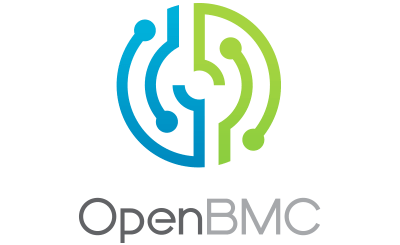
OpenBMC
Embedded & IoT
Started Date: 2018
The OpenBMC Project community is defining a baseboard management controller stack that will work across heterogeneous systems, including enterprise, HPC, telco, and cloud-scale data centers. IBM has providing their OpenBMC code base to The Linux Foundation and Facebook, Google, Intel, and Microsoft also support the organization.
BMCs, specialized controllers that monitor the state of a computer or hardware, are typically found in the main circuit board of the device they monitor. They enable monitoring and management of various aspects of the machine, such as health (e.g., temperature and voltages), log events for failure analysis, and provide a range of other remote management capabilities.
View Project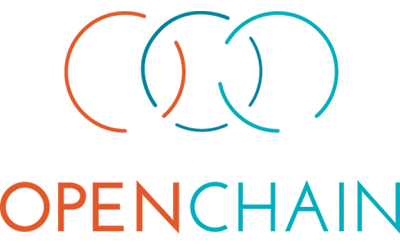
OpenChain Project
FOSS Management
Started Date: 2015
The OpenChain Project will provide a baseline process that can be customized as companies and developers see fit. It will initially provide a set of guidelines intended to be used as a basis for monitoring and developing compliance programs. OpenChain will leverage existing best practices in the Linux ecosystem, such as Debian, as well as compatible formats with the Software Package Data Exchange® (SPDX), a standard format for communicating the components, licenses, and copyrights associated with a software package. The SPDX standard helps facilitate compliance with free and open source software licenses by standardizing the way license information is shared across the software supply chain.
View Project
The OpenChain Project will provide a baseline process that can be customized as companies and developers see fit. It will initially provide a set of guidelines intended to be used as a basis for monitoring and developing compliance programs. OpenChain will leverage existing best practices in the Linux ecosystem, such as Debian, as well as compatible formats with the Software Package Data Exchange® (SPDX), a standard format for communicating the components, licenses, and copyrights associated with a software package. The SPDX standard helps facilitate compliance with free and open source software licenses by standardizing the way license information is shared across the software supply chain.
OpenColorIO
Started Date: 1970
OpenColorIO (OCIO) is a complete color management solution geared towards motion picture production with an emphasis on visual effects and computer animation. OCIO provides a straightforward and consistent user experience across all supporting applications while allowing for sophisticated back-end configuration options suitable for high-end production usage. OCIO is compatible with the Academy Color Encoding Specification (ACES) and is LUT-format agnostic, supporting many popular formats.
View ProjectOpenCue
Started Date: 1970
OpenCue is an open source render management system. You can use OpenCue in visual effects and animation production to break down complex jobs into individual tasks. You can submit jobs to a configurable dispatch queue that allocates the necessary computational resources.
View Project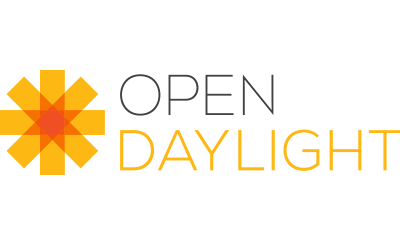
OpenDaylight
Networking
Started Date: 2013
The OpenDaylight foundation promotes and advances the global development, distribution, and adoption of the OpenDaylight (ODL) open source SDN platform. Founded in 2013, we maintain an independent governance and infrastructure to help ensure ODL’s development can occur in a neutral environment.
Its aim is to facilitate the growth of a strong OpenDaylight and Open SDN ecosystem by collaborating with developers, end users, and our members to produce the most relevant programs, events, and resources.
The work done by ODL is made possible by contributions from Silver, Gold, and Platinum members, as well as the countless technical contributions from its developer community. As an open source project, the ODL platform is freely available for use under the Eclipse Public License (EPL), and anyone can participate in its development.
View Project
The OpenDaylight foundation promotes and advances the global development, distribution, and adoption of the OpenDaylight (ODL) open source SDN platform. Founded in 2013, we maintain an independent governance and infrastructure to help ensure ODL’s development can occur in a neutral environment.
Its aim is to facilitate the growth of a strong OpenDaylight and Open SDN ecosystem by collaborating with developers, end users, and our members to produce the most relevant programs, events, and resources.
The work done by ODL is made possible by contributions from Silver, Gold, and Platinum members, as well as the countless technical contributions from its developer community. As an open source project, the ODL platform is freely available for use under the Eclipse Public License (EPL), and anyone can participate in its development.
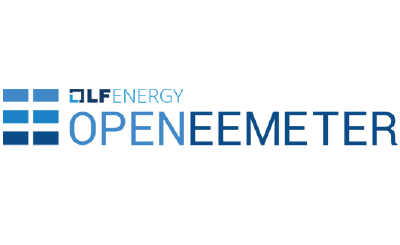
OpenEEmeter
Started Date: 1970
Using the OpenEEmeter, private companies, utilities, and regulators can consistently calculate changes in energy consumption for building efficiency projects and portfolios with confidence in the methods and replicability of results.
View ProjectOpenEXR
Started Date: 1970
OpenEXR provides the specification and reference implementation of the EXR file format, the professional-grade image storage format of the motion picture industry. An Academy Software Foundation project.
View Project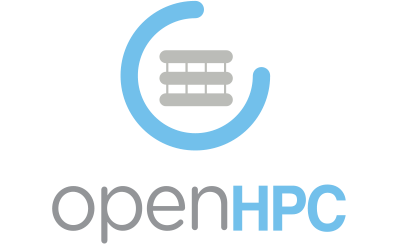
OpenHPC
Blockchain & Data
Started Date: 2015
OpenHPC is a Linux Foundation project whose mission is to provide an integrated collection of HPC-centric components that can be used to provide full-featured reference HPC software stacks. Provided components should range across the entire HPC software ecosystem, including provisioning and system administration tools, resource management, I/O services, development tools, numerical libraries, and performance analysis tools.
OpenHPC members plan to work together to:
- Create a stable environment for testing and validation: The community will benefit from a shared, continuous integration environment, which will feature a build environment and source control, bug tracking, user and developer forums, collaboration tools, and a validation environment
- Reduce Costs: By providing an open source framework for HPC environments, the overall expense of implementing and operating HPC installations will be reduced
- Provide a robust and diverse open source software stack: OpenHPC members will work together on the stability of the software stack, allowing for ongoing testing and validation across a diverse range of use cases
- Develop a flexible framework for configuration: The OpenHPC stack will provide a group of stable and compatible software components that are continually tested for optimal performance. Developers and end users will be able to use any or all of these components depending on their performance needs, and may substitute their own preferred components to fit their own use cases
OpenJS Foundation
Started Date: 2019
The OpenJS Foundation is made up of 31 open source JavaScript projects including Appium, Dojo, jQuery, Node.js, and webpack. Our mission is to support the healthy growth of JavaScript and web technologies by providing a neutral organization to host and sustain projects, as well as collaboratively fund activities that benefit the ecosystem as a whole.
View Project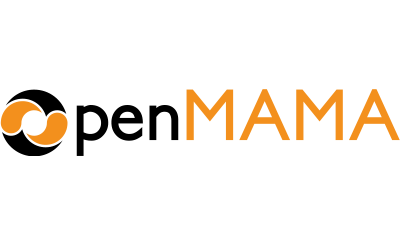
OpenMAMA
Platforms
Started Date: 2011
OpenMAMA is an open source project hosted under the auspices of The Linux Foundation, developed and designed using a collaborative effort by an open community of professionals and volunteers collectively known as contributors. Contributors include anyone who is positively contributing to the OpenMAMA Project.
About OpenMAMA:
- OpenMAMA is an open source project that provides a high-performance, middleware-agnostic messaging API that interfaces with a variety of message oriented middleware systems
- Licensed under the LGPL 2.1 license
- Hosted at The Linux Foundation in a neutral environment that encourages collaboration
- Follows open source development methods and processes
- Includes open and accessible mailing lists, source code repository, and bug tracking systems
- Participation is open to any developer, corporation, or entity, provided that they abide by the terms of the project and the LGPL 2.1
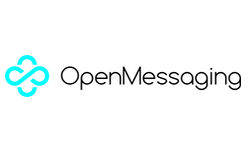
OpenMessaging
Started Date: 2017
The mission of the OpenMessaging project is to collaboratively develop: vendor-neutral and language-independent industry standards and guidelines for the use of messaging applications across industries, including finance, e-commerce, IoT, and big data, as well as an ecosystem of messaging components based on the new specification that can be reused across multiple projects and vendors.
View ProjectOpenPOWER
Started Date: 1970
The OpenPOWER Foundation is an open technical community based on the POWER architecture, enabling collaborative development and opportunity for member differentiation and industry growth.
View Project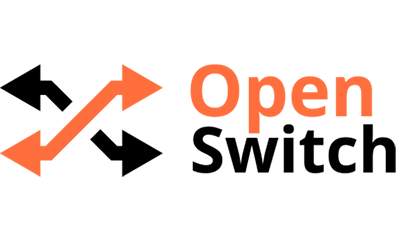
OpenSwitch
Networking
Started Date: 2016
Enterprise-grade switches power the internet by moving data packets among cloud service providers, internet service providers, corporate intranets and VPNs, data centers, civil infrastructure, and the Internet of Things. Traditional switches and network operating systems follow a proprietary and vertically integrated model, which does not allow vendors, operators, or users the flexibility to innovate and tailor networks to meet specific business needs.
OpenSwitch allows developers to build networks that prioritize business-critical workloads and functions by removing the burdens of interoperability issues and complex licensing structures that are inherent in proprietary systems. OpenSwitch is developed collaboratively, allowing users and network operators to achieve advanced performance, flexibility, and security throughout network protocols.
OpenSwitch’s elegant design enables seamless interoperability with critical enterprise-scale open source technologies such as Ansible and OpenStack, and is able to integrate with other open source technologies including Broadcom Broadview, Grommit, LLDPD, P4, OpenVSwitch, and Quagga.
OpenSwitch also includes optional integration with SnapRoute’s open source L2/L3 stack. The SnapRoute stack is designed with the principles of a modern network stack and safe software design, is built for developer use, and includes extensive operator control and instrumentation.
The OpenSwitch Project operates with an open governance model and accepts contributions from all interested companies and developers. Developer releases are currently available for prototyping, experimentation, and implementing on reference hardware.
View Project
Enterprise-grade switches power the internet by moving data packets among cloud service providers, internet service providers, corporate intranets and VPNs, data centers, civil infrastructure, and the Internet of Things. Traditional switches and network operating systems follow a proprietary and vertically integrated model, which does not allow vendors, operators, or users the flexibility to innovate and tailor networks to meet specific business needs.
OpenSwitch allows developers to build networks that prioritize business-critical workloads and functions by removing the burdens of interoperability issues and complex licensing structures that are inherent in proprietary systems. OpenSwitch is developed collaboratively, allowing users and network operators to achieve advanced performance, flexibility, and security throughout network protocols.
OpenSwitch’s elegant design enables seamless interoperability with critical enterprise-scale open source technologies such as Ansible and OpenStack, and is able to integrate with other open source technologies including Broadcom Broadview, Grommit, LLDPD, P4, OpenVSwitch, and Quagga.
OpenSwitch also includes optional integration with SnapRoute’s open source L2/L3 stack. The SnapRoute stack is designed with the principles of a modern network stack and safe software design, is built for developer use, and includes extensive operator control and instrumentation.
The OpenSwitch Project operates with an open governance model and accepts contributions from all interested companies and developers. Developer releases are currently available for prototyping, experimentation, and implementing on reference hardware.
OpenTimelineIO
Started Date: 1970
OpenTimelineIO is an interchange format and API for editorial cut information. OTIO is not a container format for media, rather it contains information about the order and length of cuts and references to external media.
View ProjectOpenTracing
Cloud
Started Date: 2016
OpenTracing – A vendor-neutral open standard for distributed tracing.
View Project
OpenVDB
Started Date: 2018
OpenVDB is an Academy Award-winning open-source C++ library comprising a novel hierarchical data structure and a suite of tools for the efficient storage and manipulation of sparse volumetric data discretized on three-dimensional grids.
View Project
OperatorFabric
Started Date: 2018
OperatorFabric is a modular, extensible, industrial-strength and field-tested platform for use in electricity, water, and other utility operations.
View Project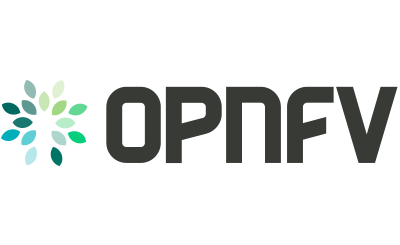
OPNFV
Networking
Started Date: 2014
OPNFV is a carrier-grade, integrated, open source platform to accelerate the introduction of new NFV products and services. As an open source project, OPNFV is uniquely positioned to bring together the work of standards bodies, open source communities, and commercial suppliers to deliver a de facto standard open source NFV platform for the industry.
By integrating components from upstream projects, the community can conduct performance and use case-based testing to ensure the platform’s suitability for NFV use cases. OPNFV will also work upstream with other open source communities to bring the learning from its work directly to those communities in the form of blueprints, patches, and code contribution.
OPNFV is mainly focused on building NFV Infrastructure (NFVI) and Virtualized Infrastructure Management (VIM) by integrating components from upstream projects such as OpenDaylight, OpenStack, Ceph Storage, KVM, Open vSwitch, and Linux. These components, along with application programmable interfaces (APIs) to other NFV elements, form the basic infrastructure required for Virtualized Network Functions (VNF) and Management and Network Orchestration (MANO) components.
View Project
OPNFV is a carrier-grade, integrated, open source platform to accelerate the introduction of new NFV products and services. As an open source project, OPNFV is uniquely positioned to bring together the work of standards bodies, open source communities, and commercial suppliers to deliver a de facto standard open source NFV platform for the industry.
By integrating components from upstream projects, the community can conduct performance and use case-based testing to ensure the platform’s suitability for NFV use cases. OPNFV will also work upstream with other open source communities to bring the learning from its work directly to those communities in the form of blueprints, patches, and code contribution.
OPNFV is mainly focused on building NFV Infrastructure (NFVI) and Virtualized Infrastructure Management (VIM) by integrating components from upstream projects such as OpenDaylight, OpenStack, Ceph Storage, KVM, Open vSwitch, and Linux. These components, along with application programmable interfaces (APIs) to other NFV elements, form the basic infrastructure required for Virtualized Network Functions (VNF) and Management and Network Orchestration (MANO) components.
osquery
Started Date: 1970
The osquery Foundation will have an open governance model that encourages participation and technical contribution and will provide a framework for long-term stewardship by an ecosystem invested in osquery’s success.
View Project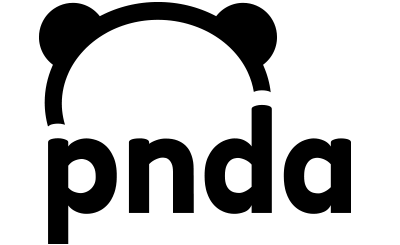
PNDA
Blockchain & Data, Networking
Started Date: 2016
Today, big data analytics architectures typically consist of a number of discrete solutions integrated in silos with collections of data sources. PNDA offers an innovative approach to collecting, processing and analyzing big data. It has a streamlined data pipeline that makes it easy to surface the right data at the right time.
By decoupling data sources from data consumers, you can integrate data sources once, then make data available for any application to process. Platform apps can perform horizontally scalable data processing, while client apps can use one of several structured query interfaces or consume streams directly.
PNDA uses Kafka and Zookeeper for high-velocity data distribution. Kafka consumer applications can consume data directly, or you can create your own toolchain with modular apps that process data, then add it to Hadoop or return it to Kafka.
View Project
Today, big data analytics architectures typically consist of a number of discrete solutions integrated in silos with collections of data sources. PNDA offers an innovative approach to collecting, processing and analyzing big data. It has a streamlined data pipeline that makes it easy to surface the right data at the right time.
By decoupling data sources from data consumers, you can integrate data sources once, then make data available for any application to process. Platform apps can perform horizontally scalable data processing, while client apps can use one of several structured query interfaces or consume streams directly.
PNDA uses Kafka and Zookeeper for high-velocity data distribution. Kafka consumer applications can consume data directly, or you can create your own toolchain with modular apps that process data, then add it to Hadoop or return it to Kafka.
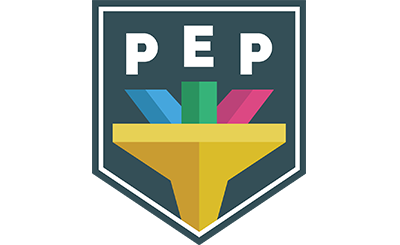
PointerEvents Polyfill (PEP)
Started Date: 1970
The PointerEvents Polyfill (PEP) is a unified event system for the web platform.
View Project
PowSyBl
Started Date: 2018
PowSyBl provides the code building blocks for the simulations and analyses of power systems, for horizons from real-time operation to investment planning)
View ProjectPresto
Started Date: 1970
Presto is a distributed system designed to run on large clusters of machines. It can query data where it is stored without needing to move the data to a separate system. Its in-memory and distributed query processing results in query latencies of seconds to minutes.
View ProjectPrometheus
Cloud
Started Date: 2017
Power your metrics and alerting with a leading open source monitoring solution – Prometheus.
View Project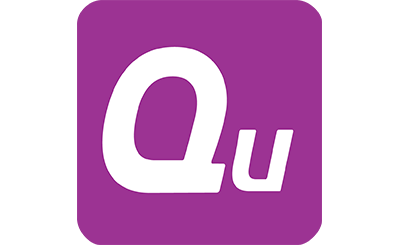
QUnit
Started Date: 1970
QUnit is a powerful, easy-to-use JavaScript unit testing framework. It’s used by the jQuery, jQuery UI and jQuery Mobile projects and is capable of testing any generic JavaScript code, including itself!
View Project
R Consortium, Inc.
Blockchain & Data
Started Date: 2015
The R Consortium, Inc. is a group organized under an open source governance and foundation model to provide support to the R community, the R Foundation, and groups and individuals using, maintaining, and distributing R software.
The R language is an open source environment for statistical computing and graphics, and runs on a wide variety of computing platforms. The R language has enjoyed significant growth, and now supports over 2 million users. A broad range of industries have adopted the R language, including biotech, finance, research, and high technology industries. The R language is often integrated into third-party analysis, visualization, and reporting applications.
The central mission of the R Consortium is to work with and provide support to the R Foundation and to the key organizations developing, maintaining, distributing, and using R software through the identification, development, and implementation of infrastructure projects.
View Project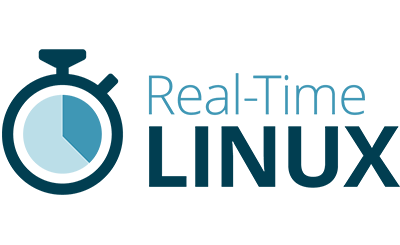
Real-Time Linux
Started Date: 2015
The Real-Time Linux (RTL) Collaborative Project was founded by industry experts to advance technologies for the robotics, telecom, manufacturing, and medical industries. The RTL Collaborative Project will initially focus on pushing critical code upstream to be reviewed and later merged into the mainline Linux kernel with ongoing support. RTL’s Thomas Gleixner, who has been maintaining the RTL branch for more than a decade, will become a Linux Foundation Fellow to dedicate even more time to this project.
View Project
RequireJS
Started Date: 1970
RequireJS is a JavaScript file and module loader. It is optimized for in-browser use, but it can be used in other JavaScript environments, like Rhino and Node.
View Project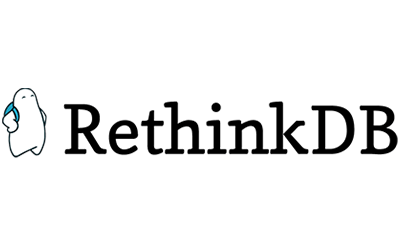
RethinkDB
Platforms
Started Date: 2015
RethinkDB is the first open-source, scalable JSON database built from the ground up for the realtime web. It inverts the traditional database architecture by exposing an exciting new access model – instead of polling for changes, the developer can tell RethinkDB to continuously push updated query results to applications in realtime. RethinkDB’s realtime push architecture dramatically reduces the time and effort necessary to build scalable realtime apps.
In addition to being designed from the ground up for realtime apps, RethinkDB offers a flexible query language, intuitive operations and monitoring APIs, and is easy to setup and learn.
See the post Advancing the realtime web for more technical details on RethinkDB’s mission.
View Project
RIAPS
Started Date: 2018
RIAPS: The Resilient Information Architecture Platform for Smart Grid (RIAPS) provides core infrastructure and services for building effective, secure and powerful distributed Smart Grid applications.
View Project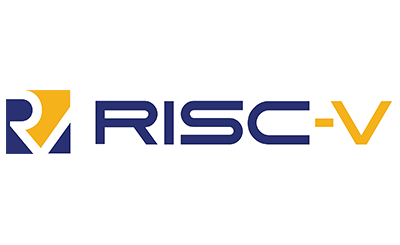
RISC-V
Started Date: 1970
The RISC-V Foundation includes over 210 institutional, academic and individual members from around the world and has realized 100 percent year-over-year membership growth. This partnership with the Linux Foundation will enable the RISC-V Foundation to grow the RISC-V ecosystem with improved support for the development of new applications and architectures across all computing platforms.
View Projectrkt
Cloud
Started Date: 2017
An application container engine developed for modern production cloud-native environments. rkt is designed to be secure, composable, and standards-based.
Some of rkt’s key features and goals include:
- Pod-native: rkt’s basic unit of execution is a pod, linking together resources and user applications in a self-contained environment.
- Security: rkt is developed with a principle of “secure-by-default”, and includes a number of important security features like support for SELinux, TPM measurement, and running app containers in hardware-isolated VMs.
- Composability: rkt is designed for first-class integration with init systems (like systemd, upstart) and cluster orchestration tools (like Kubernetes and Nomad), and supports swappable execution engines.
- Open standards and compatibility: rkt implements the appc specification, supports the Container Networking Interface specification, and can run Docker images and OCI images. Broader native support for OCI images and runtimes is in development.
Rook
Started Date: 2017
Rook is an open source orchestrator for distributed storage systems running in cloud native environments.Rook turns distributed storage software into a self-managing, self-scaling, and self-healing storage services. It does this by automating deployment, bootstrapping, configuration, provisioning, scaling, upgrading, migration, disaster recovery, monitoring, and resource management. Rook uses the facilities provided by the underlying cloud-native container management, scheduling and orchestration platform to perform its duties. Rook is currently in alpha state and has focused initially on orchestrating Ceph on-top of Kubernetes. Ceph is a distributed storage system that provides file, block and object storage and is deployed in large scale production clusters.
View ProjectSeL4
Started Date: 2020
seL4 is a high-assurance, high-performance operating system microkernel. It is unique because of its comprehensive formal verification, without compromising performance. It is meant to be used as a trustworthy foundation for building safety- and security-critical systems. It is available as open source on GitHub and supported by the seL4 Foundation.
View Project
Sizzle
Started Date: 1970
Sizzle is a pure-JavaScript CSS selector engine designed to be easily dropped in to a host library.
View Project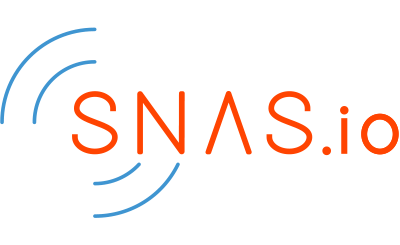
SNAS.io
Networking
Started Date: 2017
SNAS.io provides network routing topologies for software-defined applications. The project tackles the challenge of tracking and analyzing network routing topology data in real time for those using BGP as a control protocol, Internet service providers, large enterprises and enterprise data center networks using EVPS.
Topology network data collected stems from both layer 3 and layer 2 of the network and includes IP information, quality of service requests and physical and device specifics. The collection and analysis of this data in real time allows DevOps, NetOps and network application developers who are designing and running networks work with topology data in big volumes efficiently to better automate the management of their infrastructure.
View Project
SODA Foundation
Started Date: 2016
SODA Foundation is an open source project under Linux Foundation that aims to foster an ecosystem of open source data management and storage software for data autonomy. SODA Foundation offers a neutral forum for cross-projects collaboration and integration and provides end users quality end-to-end solutions.
View Project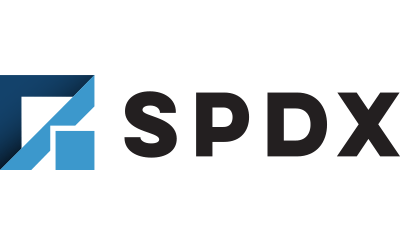
Software Package Data Exchange
FOSS Management
Started Date: 2010
The Software Package Data Exchange® (SPDX®) specification is a standard format for communicating the components, licenses, and copyrights associated with a software package.
The SPDX standard helps facilitate compliance with free and open source software licenses by standardizing the way license information is shared across the software supply chain. SPDX reduces redundant work by providing a common format for companies and communities to share important data about software licenses and copyrights, thereby streamlining and improving compliance.
The SPDX specification is developed by the SPDX workgroup, which is hosted by The Linux Foundation. The grassroots effort includes representatives from more than 20 organizations—software, systems, and tool vendors, foundations and systems integrators—all committed to creating a standard for software package data exchange formats.
View Project
The Software Package Data Exchange® (SPDX®) specification is a standard format for communicating the components, licenses, and copyrights associated with a software package.
The SPDX standard helps facilitate compliance with free and open source software licenses by standardizing the way license information is shared across the software supply chain. SPDX reduces redundant work by providing a common format for companies and communities to share important data about software licenses and copyrights, thereby streamlining and improving compliance.
The SPDX specification is developed by the SPDX workgroup, which is hosted by The Linux Foundation. The grassroots effort includes representatives from more than 20 organizations—software, systems, and tool vendors, foundations and systems integrators—all committed to creating a standard for software package data exchange formats.
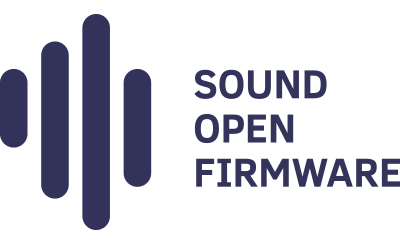
Sound Open Firmware
Started Date: 2018
SOF includes digital signal processing firmware and an SDK that together provide infrastructure and development tools for developers working on audio or signal processing. They are platform- and architecture-agnostic.
The SDK comes with five components: the firmware source code, firmware tools to convert firmware into appropriate formats and debug, a tool chain for firmware image creation, an emulator to trace and debug drivers and firmware, and ASoC Linux kernel drivers that are required to register the DSP and firmware. These tools include scripts to help developers evaluate tradeoffs between memory, audio quality, and processor load. The project also has GNU Debugger integration.
View ProjectSpinnaker
Started Date: 2019
Spinnaker is an open source, multi-cloud continuous delivery platform for releasing software changes with high velocity and confidence. Created at Netflix, it has been battle-tested in production by hundreds of teams over millions of deployments. It combines a powerful and flexible pipeline management system with integrations to the major cloud providers.
View Project
StackStorm
Started Date: 2019
The StackStorm™ is a workflow automation platform that allows end-users to connect their apps, services, and workflows to automate and streamline critical IT-driven business processes. The platform offers event driven workflow-centric automation, with infrastructure as code, built-to-scale microservice architecture, and rich extensibility. Common applications include automated remediation, continuous deployment, ChatOps, and automated security response. Its passionate user base includes tier one service providers, retailers, media and entertainment companies, and technology providers. The open source platform was created in 2013 and was transitioned to the Linux Foundation in 2019. For more information, please visit stackstorm.com.
View ProjectTARS
Started Date: 2019
Tars is a highly performance rpc framework based on naming service using tars protocol and provides a semi-automatic operation platform.
View ProjectTekton
Started Date: 2019
Tekton is a set of shared, open source components for building CI/CD systems. It modernizes the Continuous Delivery control plane and moves the brains of software deployment to Kubernetes. Tekton’s goal is to provide industry specifications for CI/CD pipelines, workflows and other building blocks through a vendor neutral, open source foundation.
View Project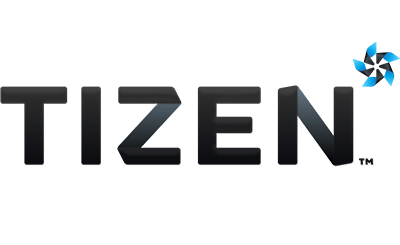
Tizen
Embedded & IoT
Started Date: 2011
Tizen is an open source project that is the home of the Tizen software platform, a mobile and device operating system based on Linux and other popular upstream projects. Tizen supports multiple device categories, such as smartphones, tablets, smart TVs, netbooks, smart watches, and in-vehicle infotainment (IVI).
The Tizen application programming interfaces are based on HTML5 and other web standards, and we anticipate that the vast majority of Tizen application development will be based on these emerging standards. These APIs will cover various platform capabilities, such as messaging, multimedia, camera, network, and social media. For those who use native code in their applications, the Tizen SDK will include a native development kit. We will open the entire Tizen software stack, from the core OS up through the core applications and polished user interfaces.
View Project
TODO Group
FOSS Management
Started Date: 2014
Open source is part of the fabric of each of our companies. Between us, our open source programs enable us to use, contribute to, and maintain thousands of projects, both large and small.
These programs face many challenges, such as ensuring high-quality and frequent releases, engaging with developer communities, and contributing back to other projects effectively.
The members of the TODO Group are committed to working together in order to overcome these challenges. We will be sharing experiences, developing best practices, and working on common tooling.
View ProjectTrust Over IP
Started Date: 2020
The Trust over IP Foundation is defining a complete architecture for Internet-scale digital trust that combines both cryptographic trust at the machine layer and human trust at the business, legal, and social layers.
View ProjectTUF
Started Date: 2017
A CNCF project, The Update Framework (TUF) is a specification for securing software-update systems against attacks that occur during updates or initial installations. TUF was originally developed by the NYU School of Engineering and has been integrated into enterprise software products developed by Docker and VMware, among others. TUF uses cryptographic keys to help protect against known exploits during software installation or updates, by ensuring users are installing the files they intend to install. TUF is integrated as part of the software-development process, rather than as a standalone cybersecurity tool.
View ProjectTungsten Fabric
Networking
Started Date: 2018
Tungsten Fabric is an open source network virtualization solution for providing connectivity and security for virtual, containerized or bare-metal workloads.
View ProjectVitess
Started Date: 2017
Vitess, a CNCF project, is a database clustering system for horizontal scaling of MySQL through generalized sharding. By encapsulating shard-routing logic, Vitess allows application code and database queries to remain agnostic to the distribution of data onto multiple shards. With Vitess, you can even split and merge shards as your needs grow, with an atomic cutover step that takes only a few seconds. Vitess has been a core component of YouTube’s database infrastructure since 2011, and has grown to encompass tens of thousands of MySQL nodes. It is architected to run as effectively in a public or private cloud architecture as it does on dedicated hardware. It combines and extends many important MySQL features with the scalability of a NoSQL database.
View Project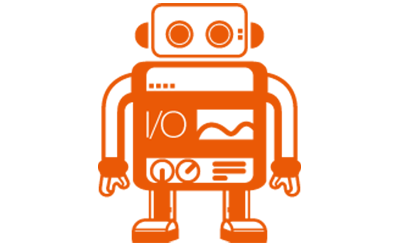
Webdriver IO
Started Date: 1970
A Node.js bindings implementation for the W3C WebDriver protocol.
View Project
WebHint
Started Date: 1970
webhint is a linting tool for the web, with a strong focus on the developer experience: easy to configure, develop, and well documented.
View Project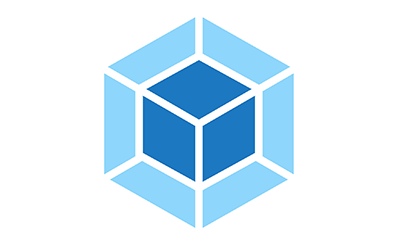
Webpack
Started Date: 1970
webpack is a bundler for modules and is primarily used to bundle JavaScript files for usage in a browser. It is also capable of transforming, bundling, or packaging just about any resource or asset.
View Project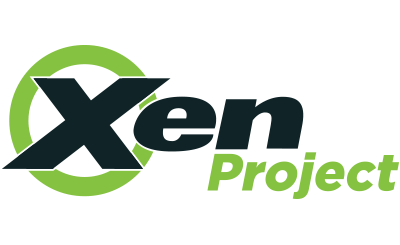
Xen Project
Cloud
Started Date: 2003
The Xen Project is the leading open source virtualization platform that is powering some of the largest clouds in production today. Amazon Web Services, Aliyun, Rackspace Public Cloud, Verizon Cloud, and many hosting services use Xen Project software. Plus, it is integrated into multiple cloud orchestration projects like OpenStack.
The Xen Project team is a global open source community that develops the Xen Project Hypervisor and its associated subprojects. Xen (pronounced /’zɛn/) Project has its origins in the ancient greek term Xenos (ξένος), which can be used to refer to guest-friends whose relationship is constructed under the ritual of xenia (“guest-friendship”), which in turn is a wordplay on the idea of guest operating systems as well as a community of developers and users.
View ProjectXGVela
Started Date: 1970
XGVela is an open source collaborative cloud native Platform as a Service (PaaS) for applications and Telco network functions, which is to enable new services and help mobile operators to seize business opportunities from vertical industries in the 5G era.
Vela stands for sail in Latin, and is also the name of a constellation. With XGVela, a PaaS platform with Telco features can be used to accelerate the innovation, design, and development of Telco related services. XGVela is hosted by The Linux Foundation, including leading Silicon Vendors, Original Design Manufacturers (ODM), System Integrators (SI), Original Equipment Manufacturers (OEM) and End Users.
View Project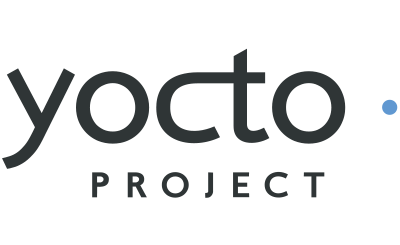
Yocto Project
Started Date: 2010
The Yocto Project is an open source collaboration project that provides templates, tools, and methods to help you create custom Linux-based systems for embedded products, regardless of the hardware architecture. It was founded in 2010 as a collaboration among many hardware manufacturers, open source operating systems vendors, and electronics companies.
As an open source project, the Yocto Project operates with a hierarchical governance structure based on meritocracy and managed by its chief architect, Richard Purdie, a Linux Foundation fellow. This enables the project to remain independent of any one of its member organizations, who participate in various ways and provide resources to the project.
View Project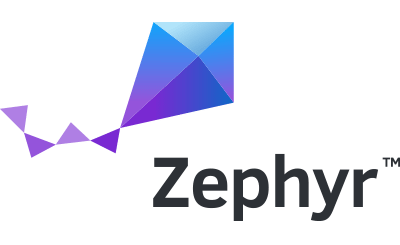
Zephyr Project
Embedded & IoT
Started Date: 2016
Zephyr Project is a small, scalable, real-time operating system for use on resource-constrained systems supporting multiple architectures. Developers are able to tailor their optimal solution. As a true open source project, the community can evolve the Zephyr Project to support new hardware, developer tools, and sensor and device drivers. Advancements in security, device management capabilities, connectivity stacks, and file systems can be easily implemented.
View ProjectZowe
Started Date: 1970
Zowe offers modern interfaces to interact with z/OS and allows you to work with z/OS in a way that is similar to what you experience on cloud platforms today. You can use these interfaces as delivered or through plug-ins and extensions that are created by clients or third-party vendors.
View Project
